-
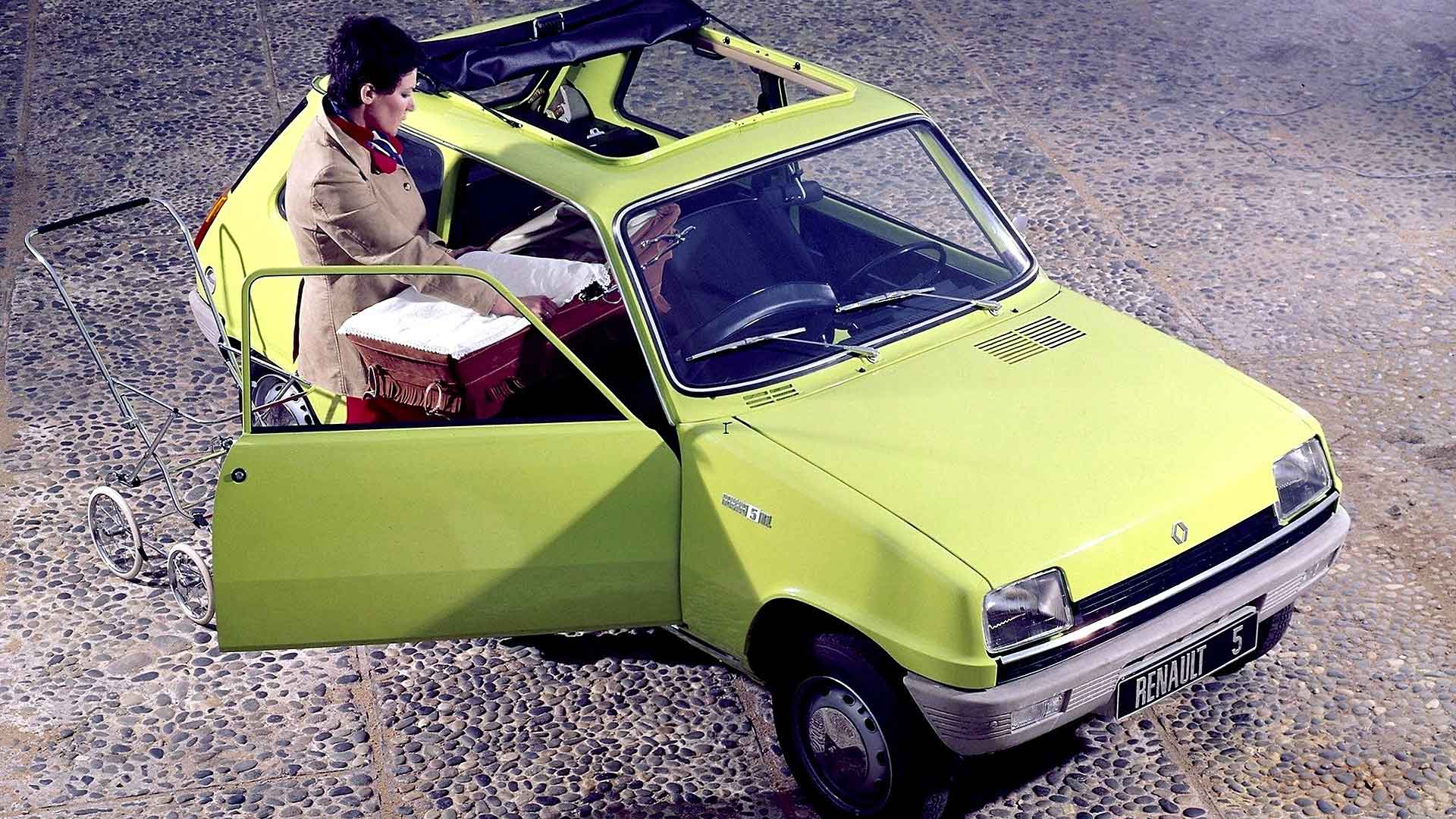
Birthday cars
© RenaultDo you share your birthday with a celebrity? Maybe you were born on the same day as a famous sports star? Here, we reveal the most significant car launch from the year you were born. Selecting a single car for some years was tough, but there’s no shortage of important vehicles on our list.
-
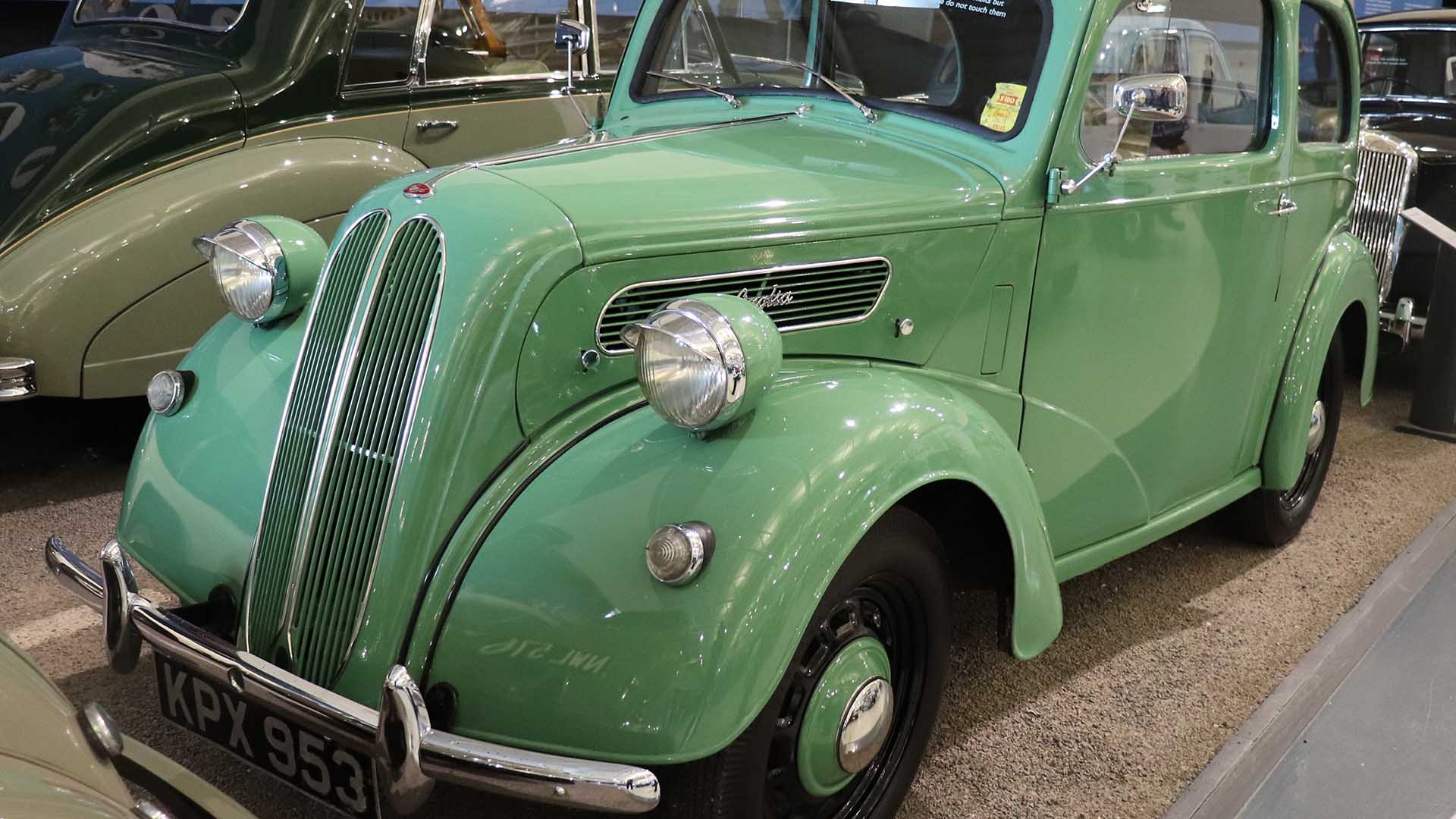
1949 – Ford Anglia
© Vauxford WikipediaOur story begins with the Ford Anglia E494A. This was a makeover of the earlier Anglia and it was, at the time, Britain’s most affordable four-wheeled car. It remained in production as the Popular until 1959, by which time Ford had launched the Anglia 105E.
-
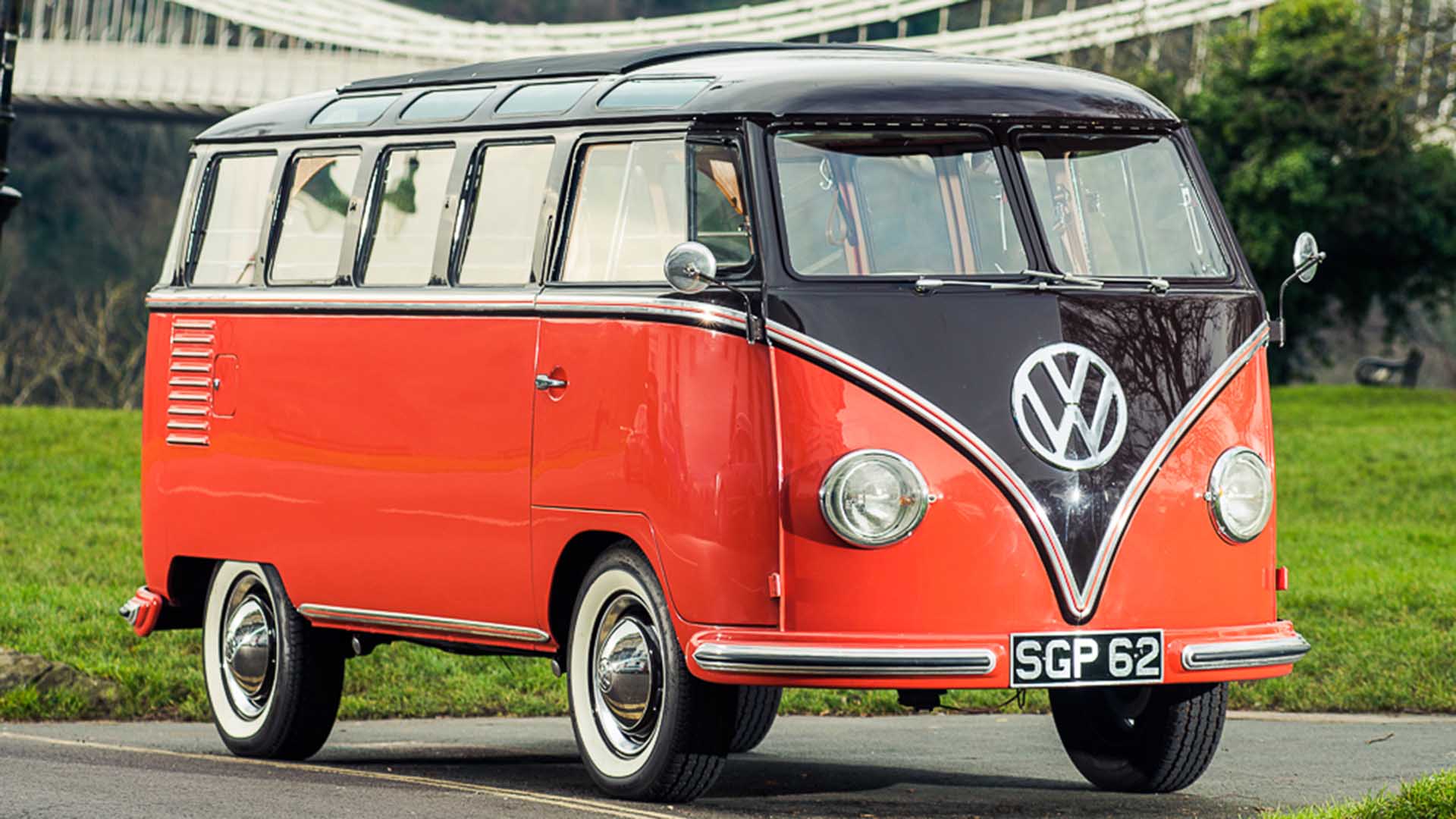
1950 – Volkswagen Type 2
© Silverstone AuctionsArguably one of the world’s most famous vans, the Volkswagen Type 2 is perhaps best known in Kombi and Camper forms. It was VW’s first van, sharing the same rear-engined layout as the Beetle. Production continued until 1967, although the T2 lived on in Brazil until 1975.
-
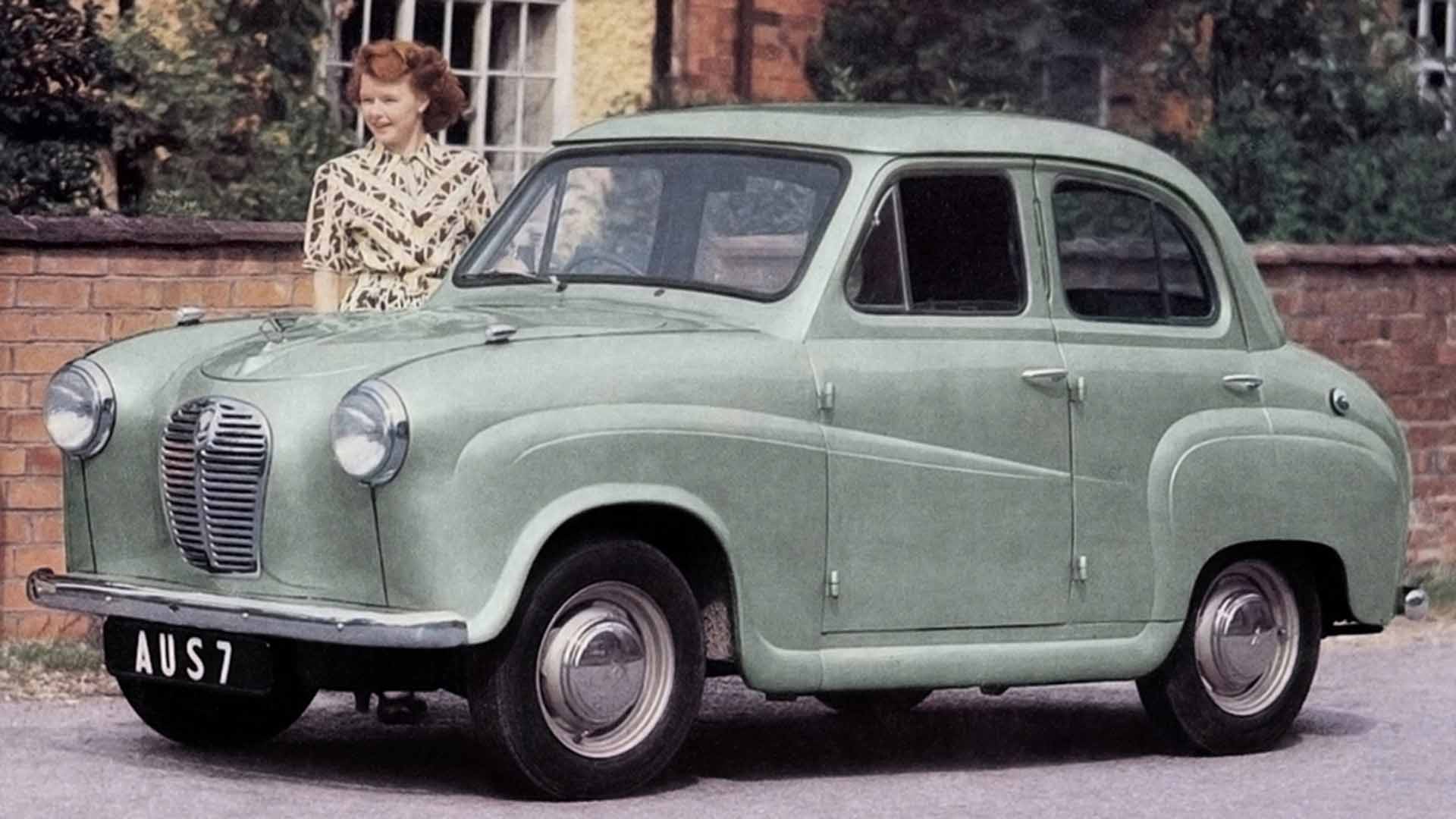
1951 – Austin A30
© AustinThe A30 represented a quantum leap for Austin, both in terms of its construction and the choice of engine. Radical styling, a monocoque construction and the first use of the famous A-Series engine were just three of the reasons why the Austin A30 was such a significant car for the British car industry.
-
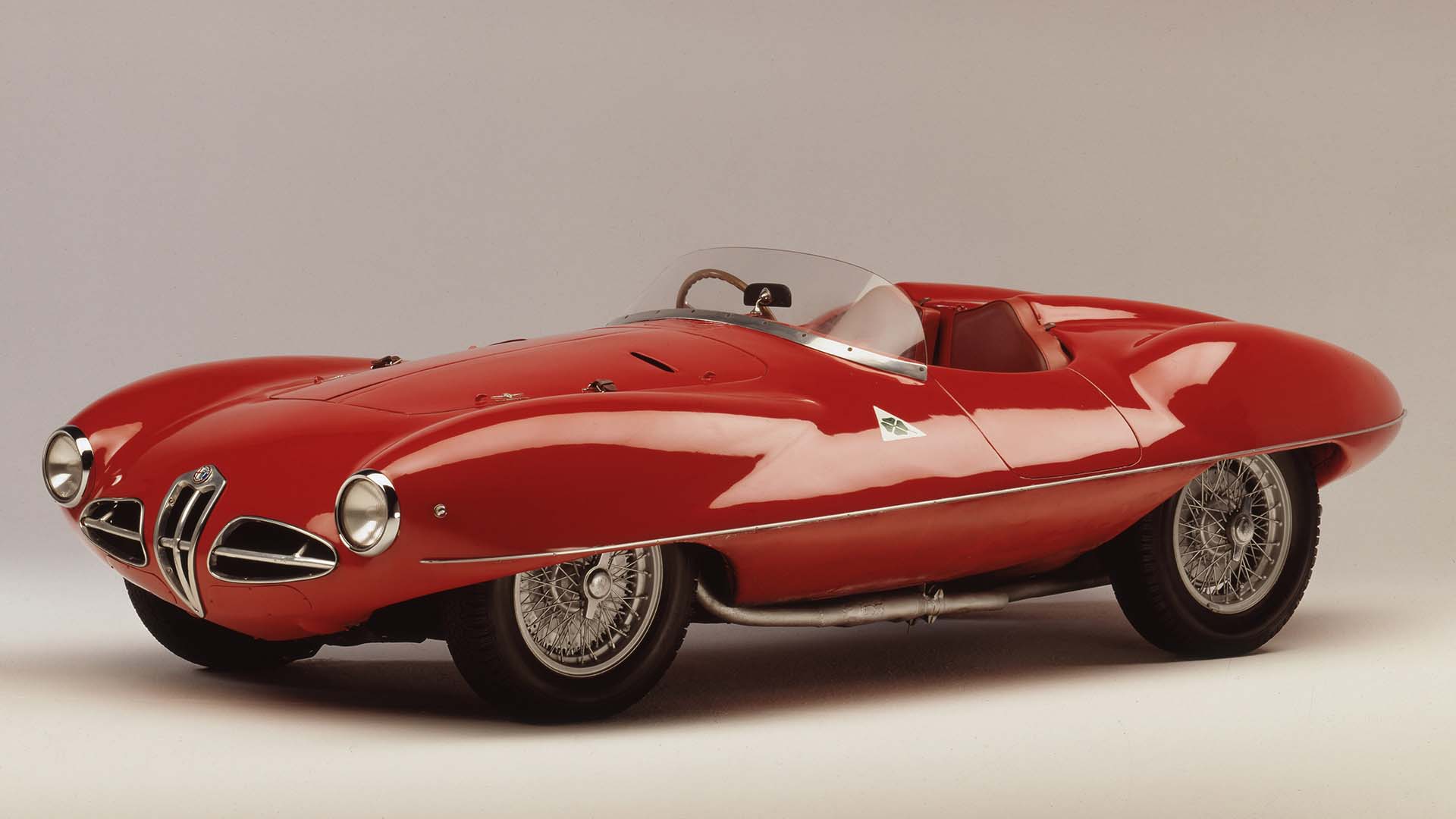
1952 – Alfa Romeo Disco Volante
© Alfa RomeoThe Alfa Romeo 1900 C52 Disco Volante, to use its full name, was designed by Touring in 1952. It was the first Alfa Romeo with a monocoque body shell chassis. The design led to the nickname ‘Disco Volante’, which is Italian for ‘Flying Saucer’.
-
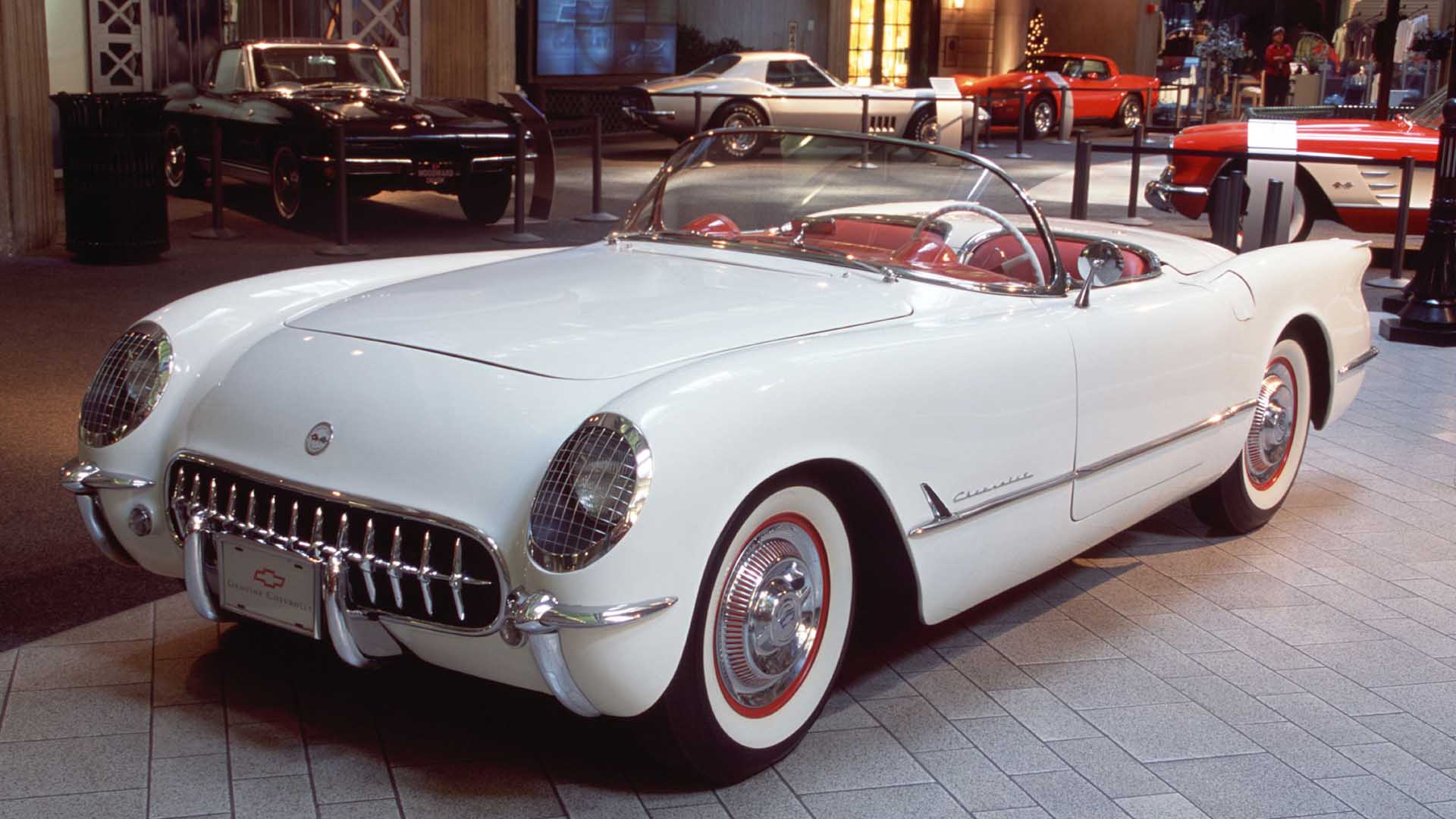
1953 – Chevrolet C1 Corvette
© ChevroletOn 30 June 1953, the first production Chevrolet Corvette rolled off the Michigan production line. Just 300 were built in the first year, all finished in Polo White with a red interior. Power was sourced from a 150hp ‘Blue Flame’ 235 cubic-inch straight-six engine, mated to a two-speed automatic transmission.
-
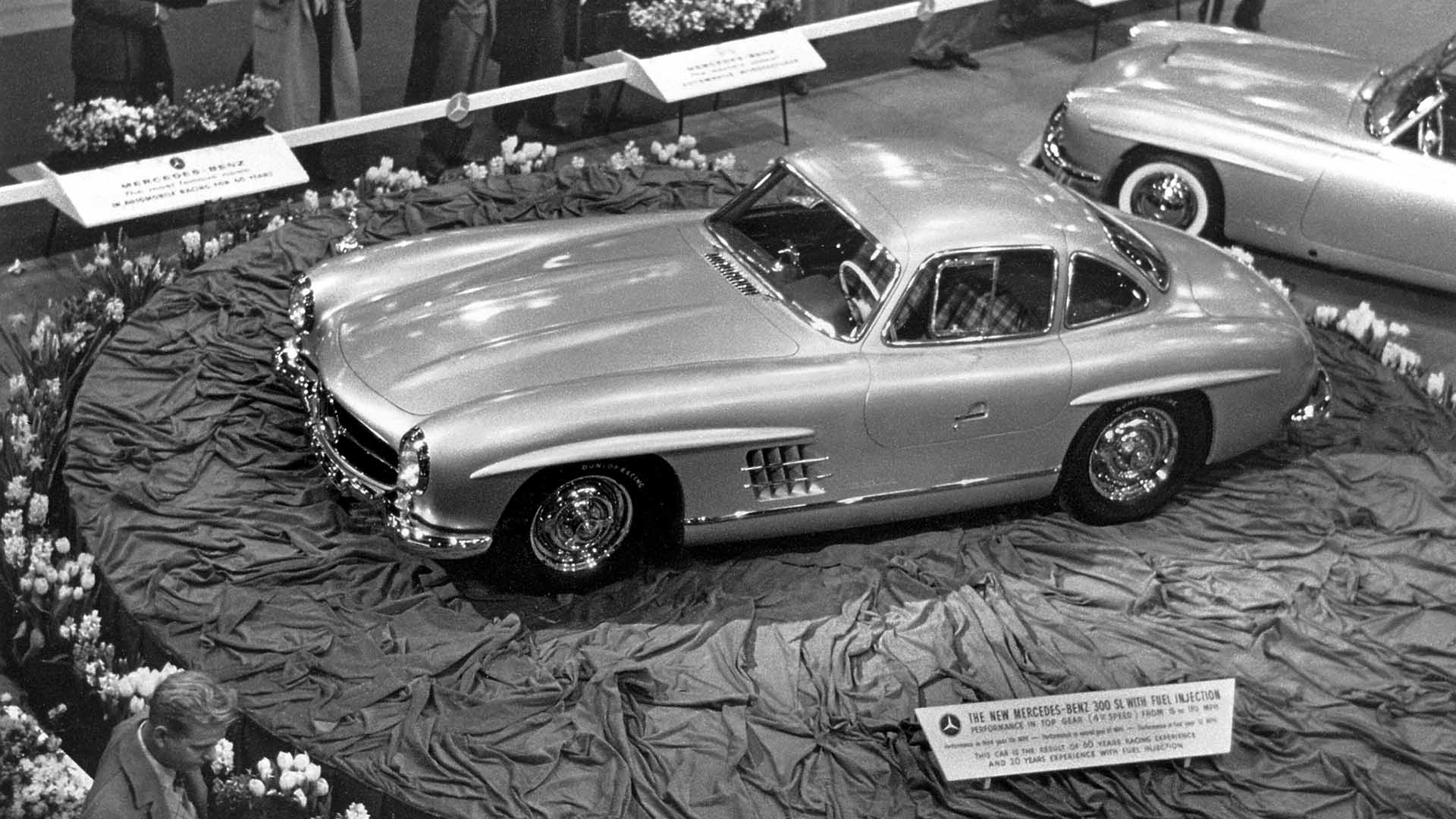
1954 – Mercedes-Benz 300 SL
© Mercedes-BenzBorn in 1954? Congratulations, you share your birthday with one of the most glamorous cars ever created. Max Hoffman, the official US importer for the Mercedes-Benz brand, campaigned for a production sports car, so it’s fitting that the 300 SL Coupe was unveiled at the 1954 New York Motor Show.
-
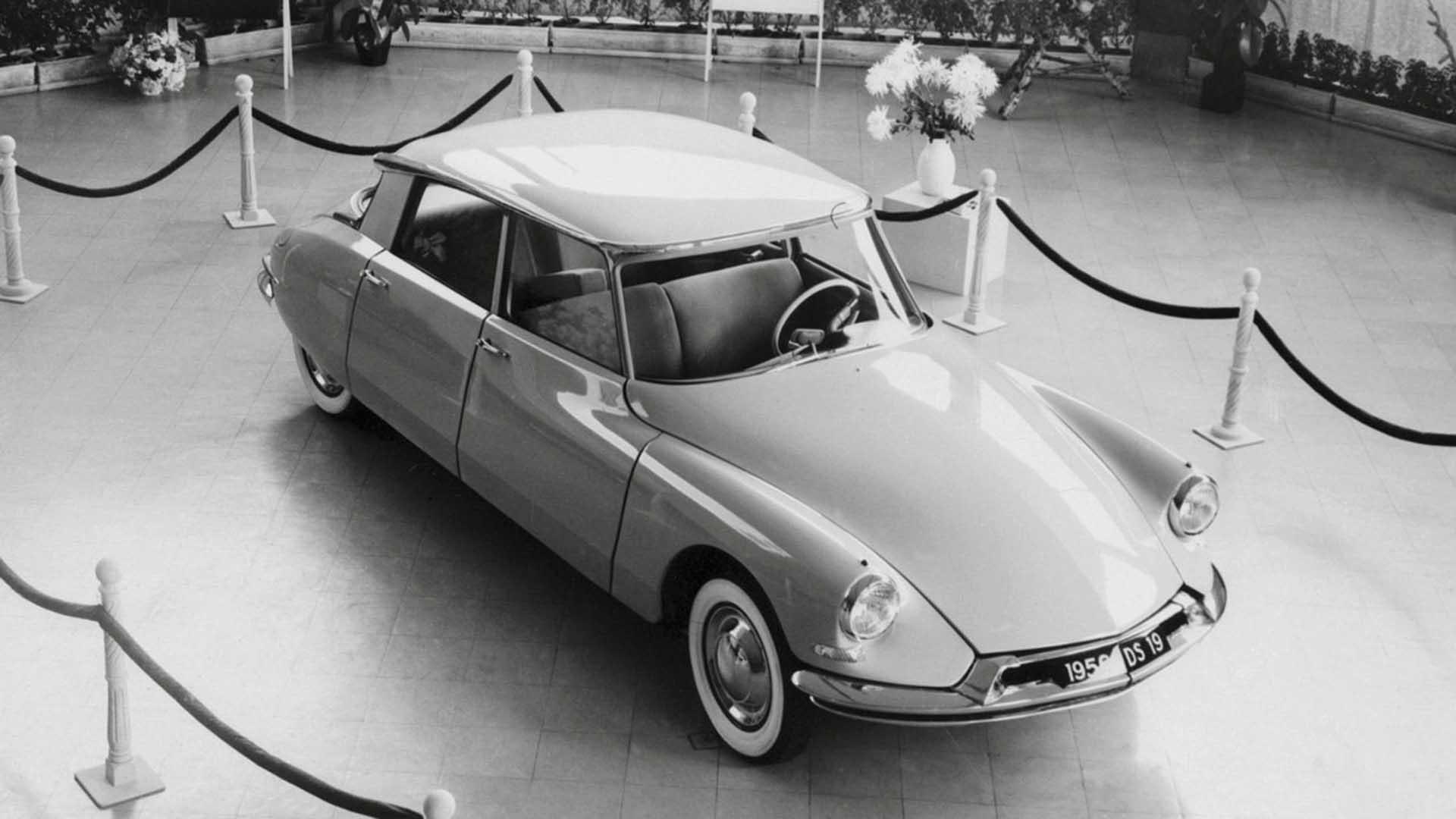
1955 – Citroen DS
© CitroenShe may be 66 years old, but the Goddess looks as good today as she did when she stole the show at the 1955 Paris Motor Show. DS, which stands for ‘Déese’, is French for ‘Goddess’. Within minutes of its unveiling, Citroen had received over 700 orders for the DS. By the end of the day, that number had increased to 12,000.
-
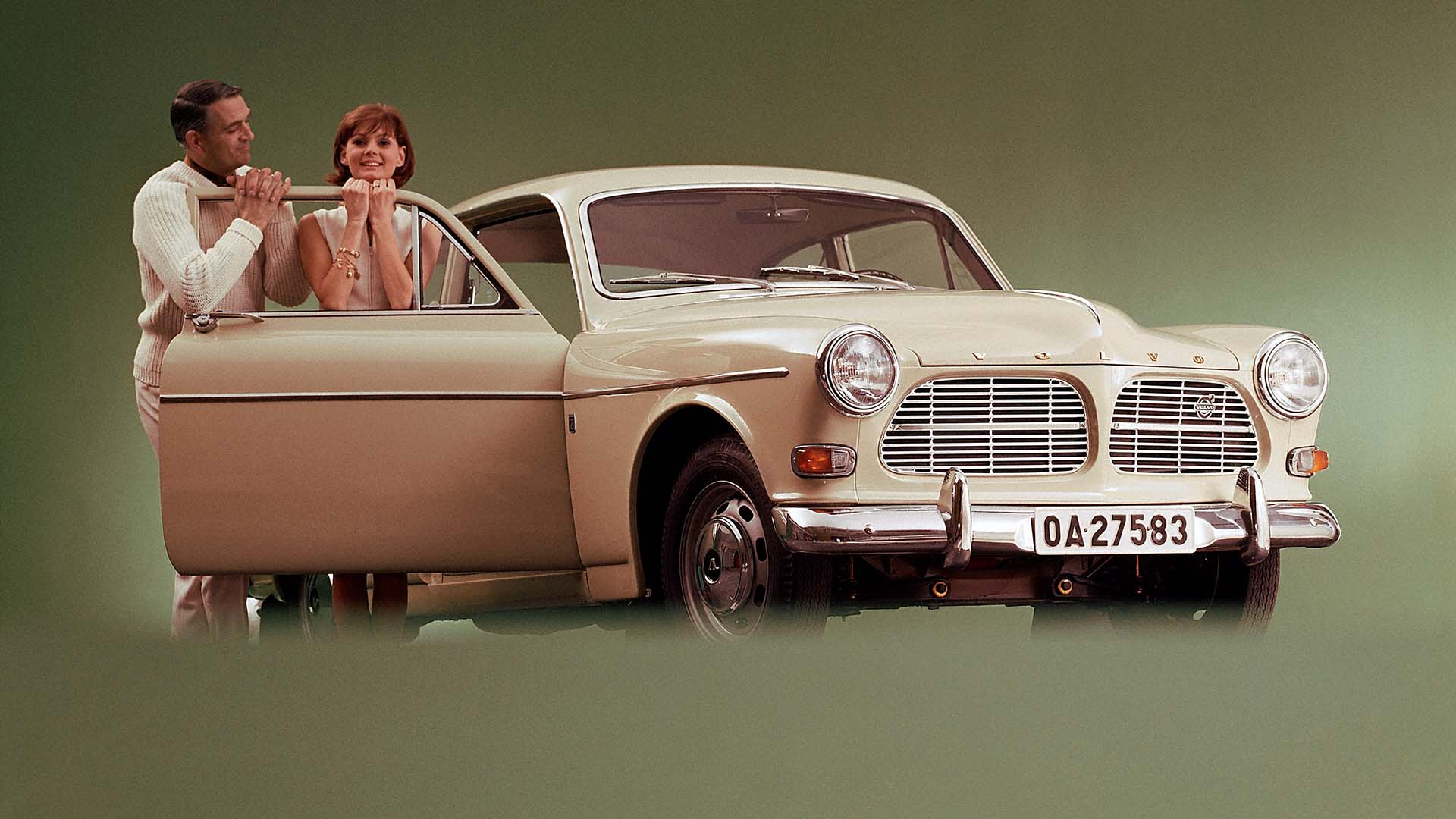
1956 – Volvo Amazon
© VolvoFrom a Goddess to a car named after the female warriors in Greek mythology, the Volvo Amazon was first revealed in September 1956. Because a German motorcycle manufacturer launched a moped called Amazone at the same time, Volvo was forced to use 121, 122, 221 and 222 as names in non-Nordic nations.
-
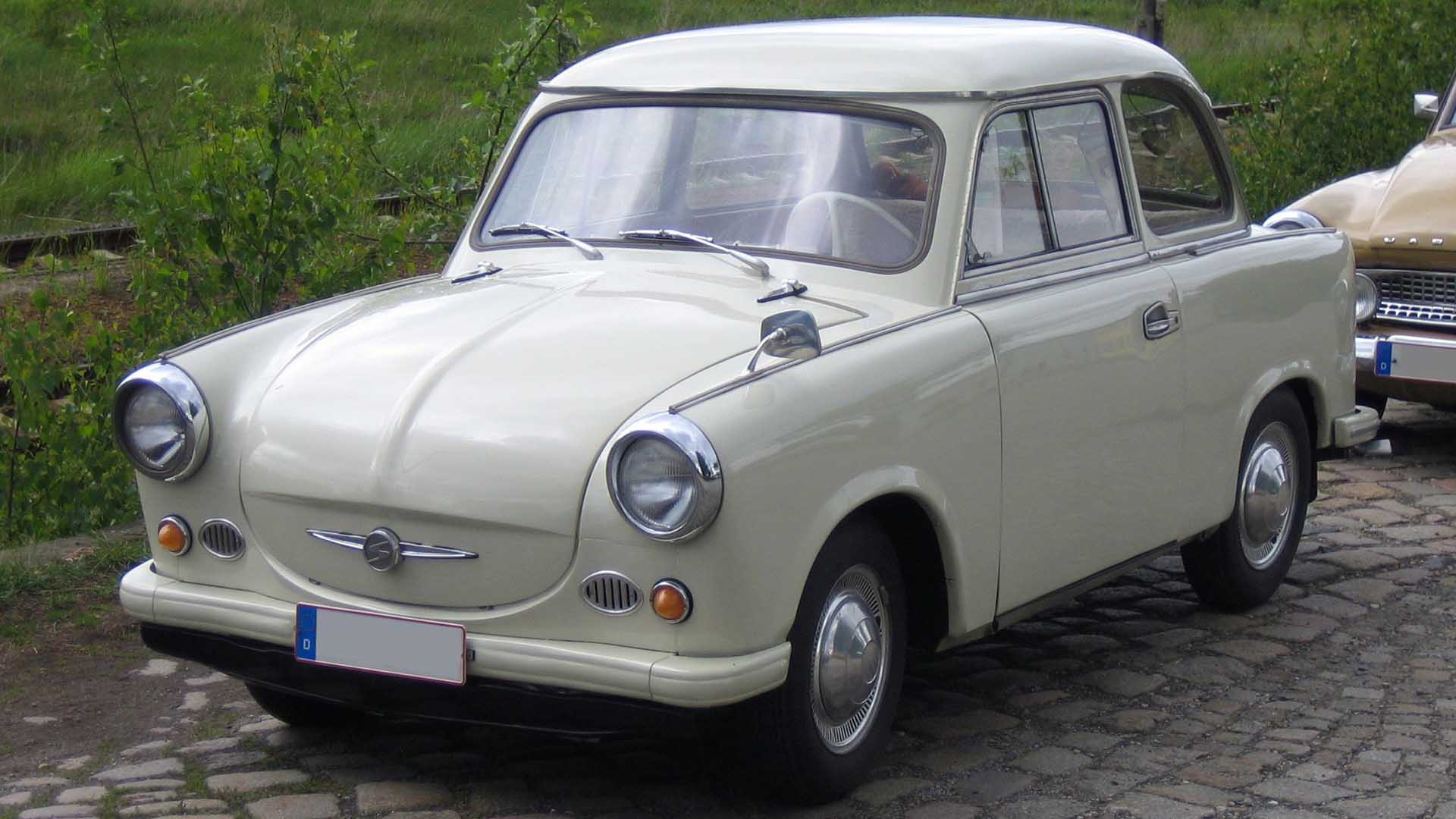
1957 – Trabant
© burts WikipediaIt might not be the famous 601 model launched in 1964, but the Trabant story begins with the P50 in 1957. Around three million Trabants were built until production stopped in 1991, following German unification in 1989.
-
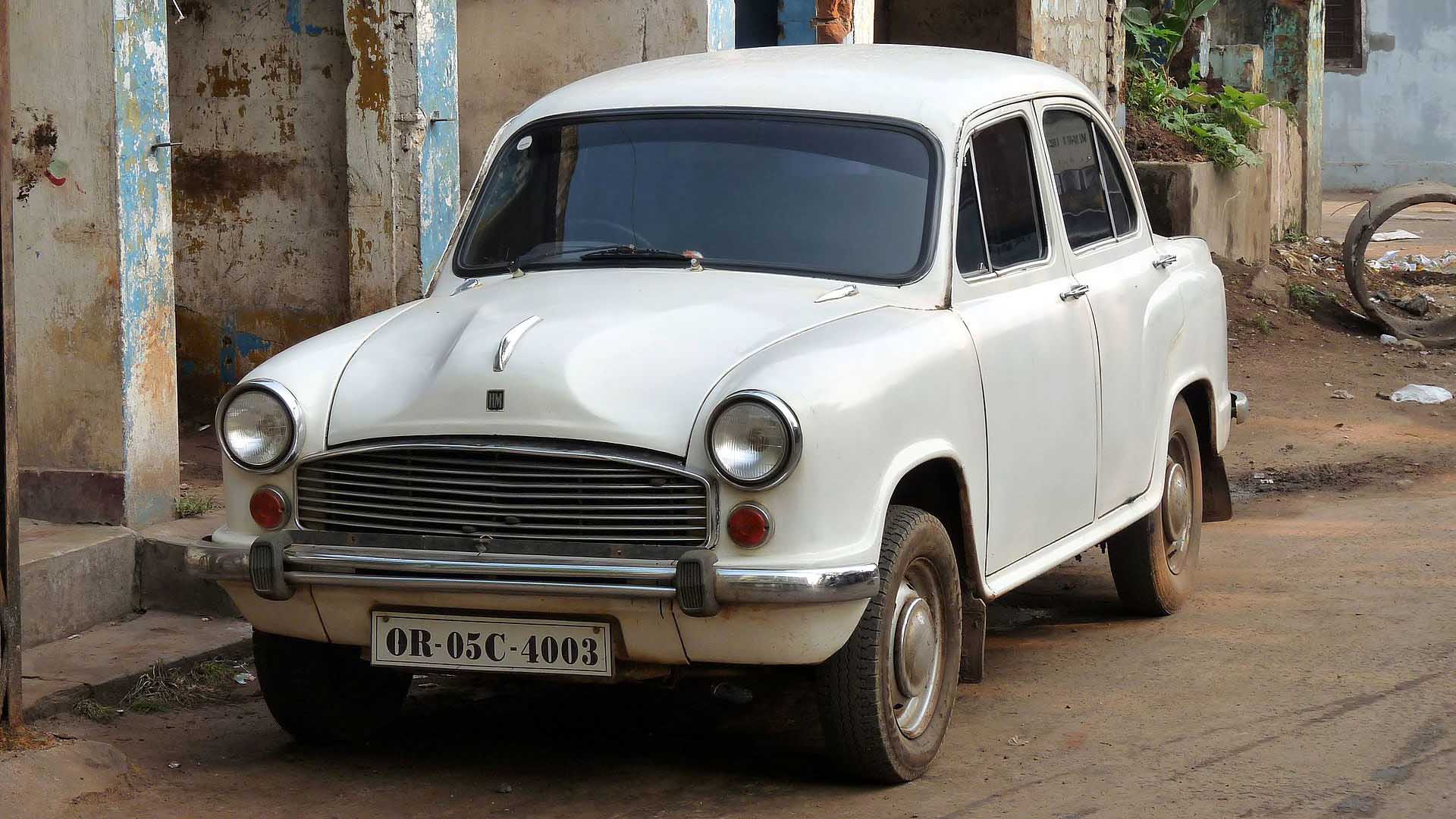
1958 – Hindustan Ambassador
© Steve Browne and John Verkleir WikipediaWe could have selected the Aston Martin DB4, Austin A40 Farina, Ford Galaxie, NSU Prinz or Volvo PV544 for 1958. But we’ve gone for the Hindustan Ambassador because of its role in mobilising India. Not bad for a car born as the Morris Oxford.
-
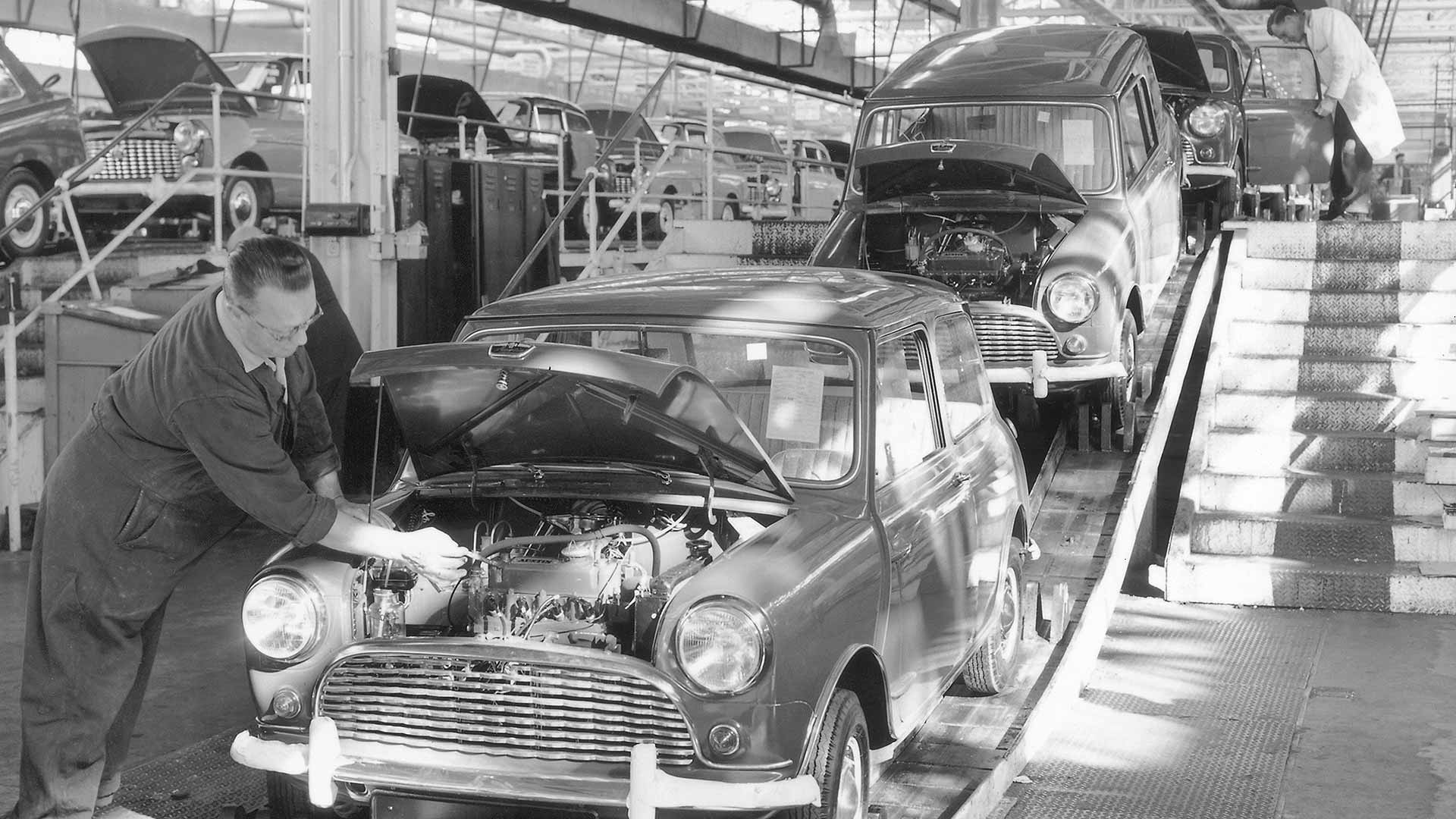
1959 – Mini
© MiniLaunched in 1959 as the Morris Mini-Minor and Austin Se7en, the Mini went on to become one of the world’s most iconic cars. ‘Wizardry on wheels!’ proclaimed the press ads, in a nod to the Mini’s excellent practicality.
-
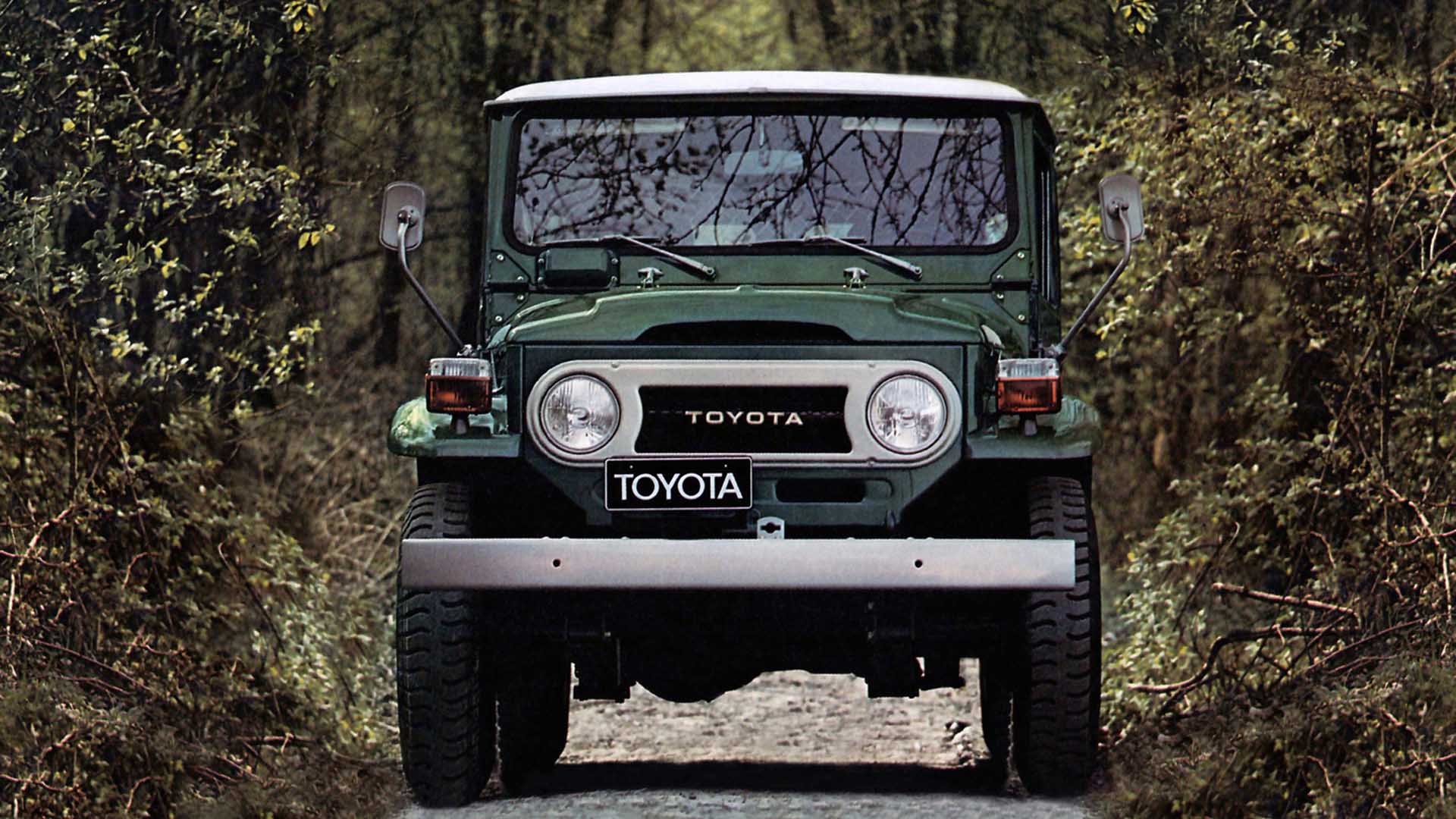
1960 – Toyota Land Cruiser J40
© ToyotaIt was a tough call, but we’ve chosen the Toyota Land Cruiser J40 over the Saab 96 and Chevrolet Corvair. Why? Because the J40 enjoyed a 50-year production run and is one of the most famous 4x4s ever built.
-
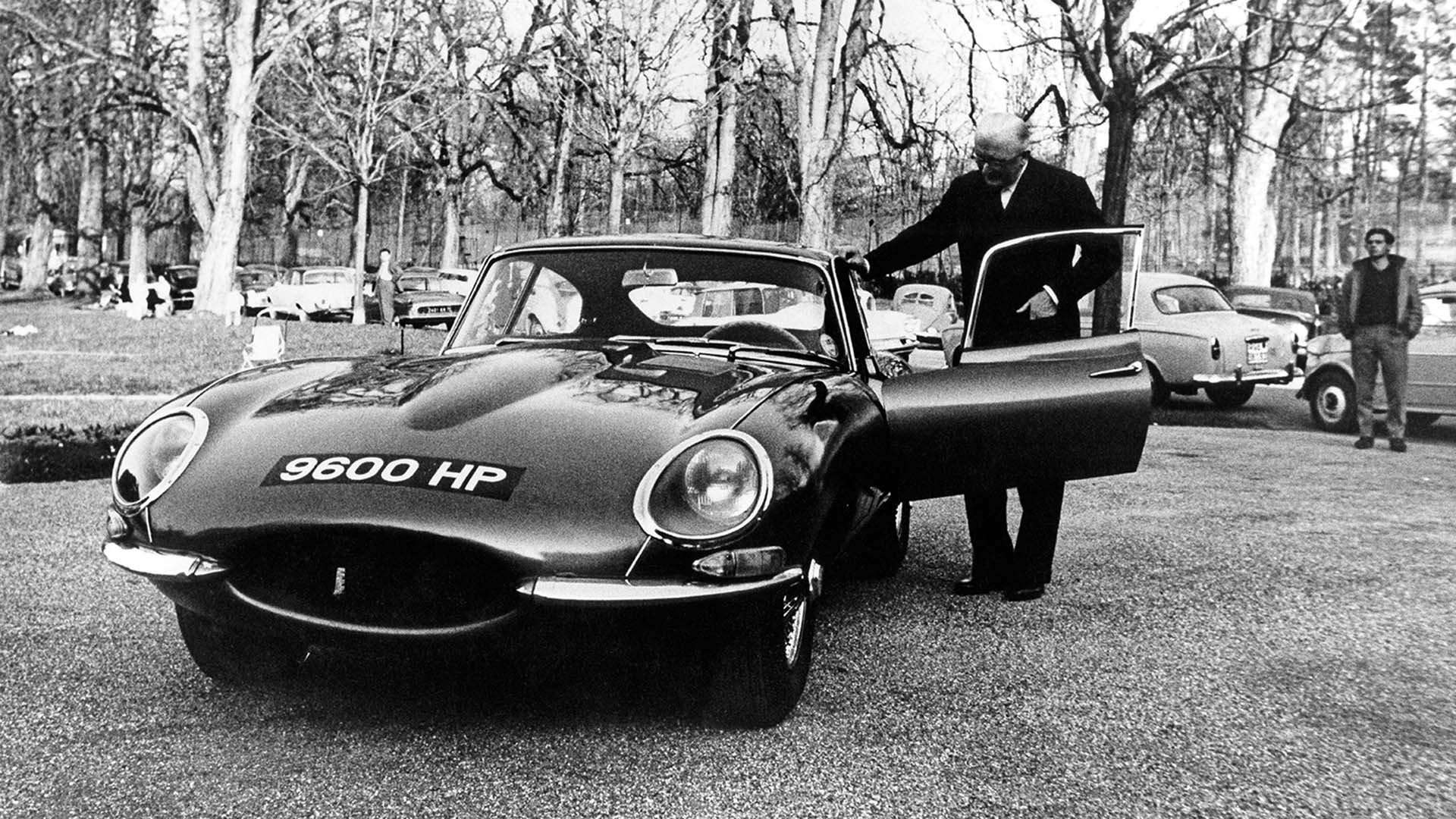
1961 – Jaguar E-Type
© JaguarSpare a thought for the other cars unveiled in 1961. They had to compete with the Jaguar E-Type, a car celebrating its 60th anniversary in 2021. Without the E-Type, the Cony Guppy would have been the most significant car of 1961. Probably.
-
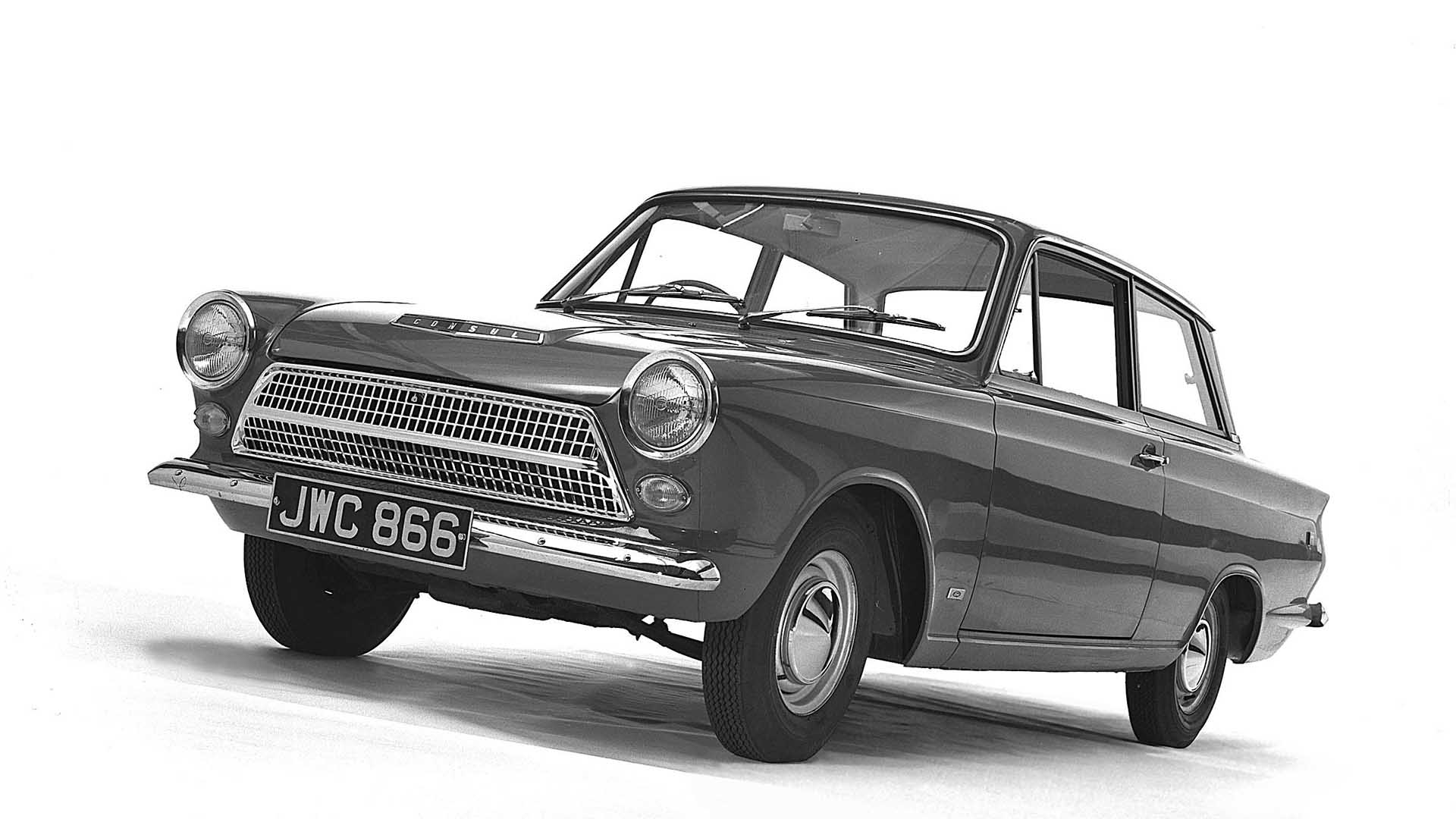
1962 – Ford Cortina
© FordNamed after an Italian ski resort, the Ford Cortina was one of the most significant cars of the 1960s and 1970s. From humble 1.2-litre versions to the legendary Lotus models, there was a Cortina for every family in Britain.
-
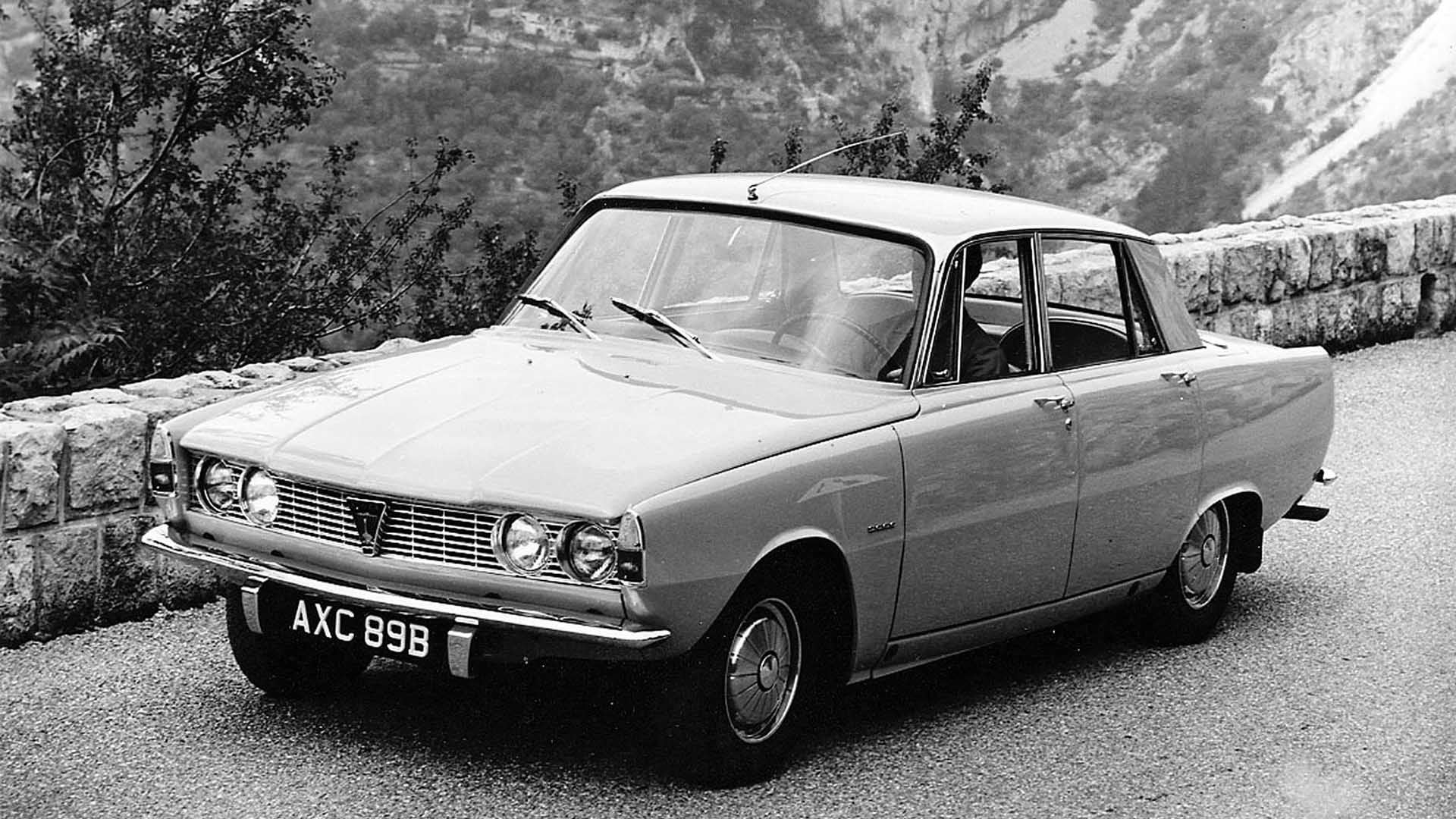
1963 – Rover P6
© RoverA deserved winner of the inaugural European Car of the Year award in 1964, the Rover P6 was unveiled a year earlier. Modern construction, a clever suspension system and a safety-led interior are just three of the highlights of the 2000, 2220 and 3500 models.
-
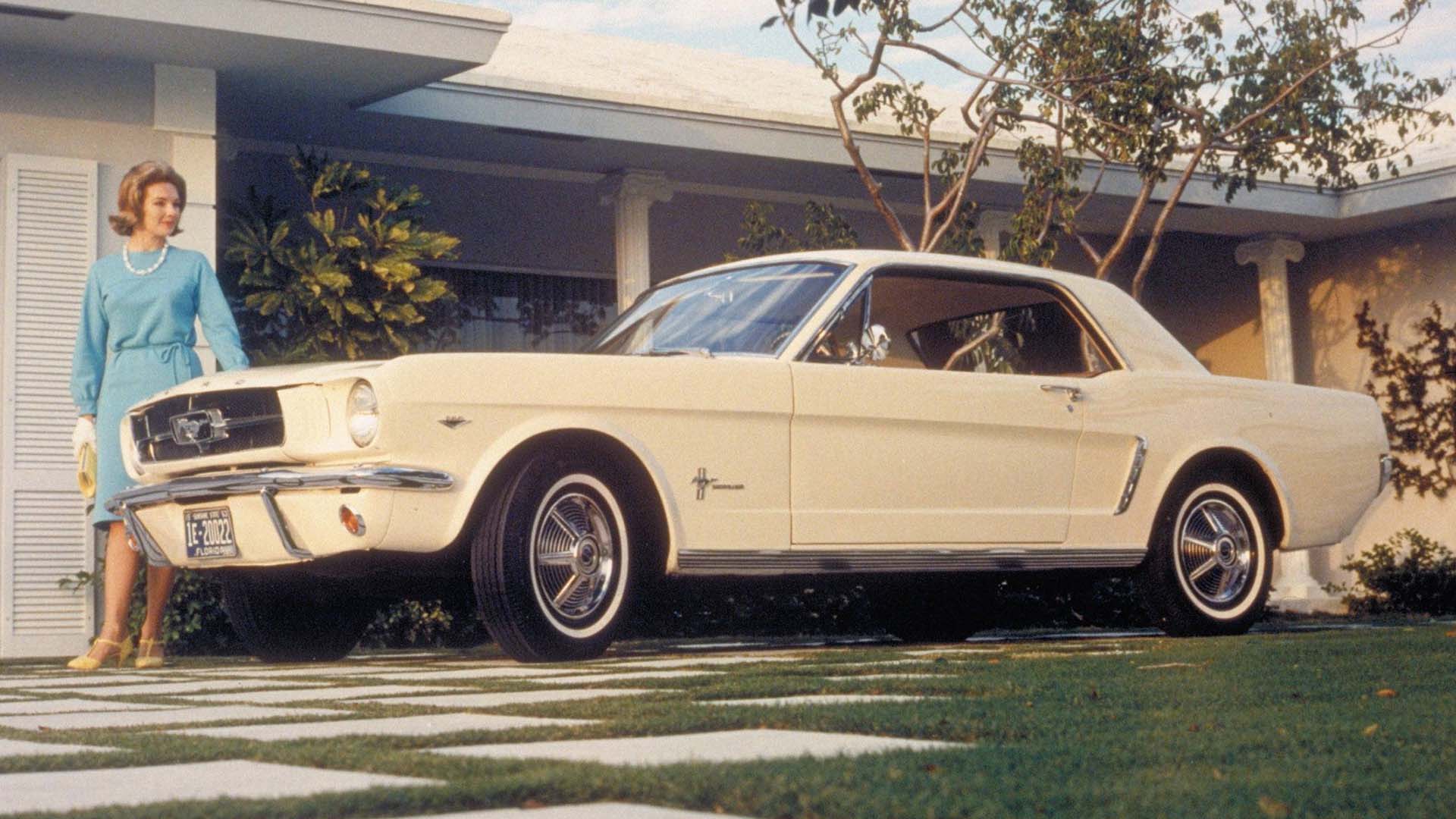
1964 – Ford Mustang
© FordThe Ford Mustang was unveiled in production form at the 1964 World’s Fair in New York. Later that year, it also appeared in the James Bond film, ‘Goldfinger’. A star was born.
-
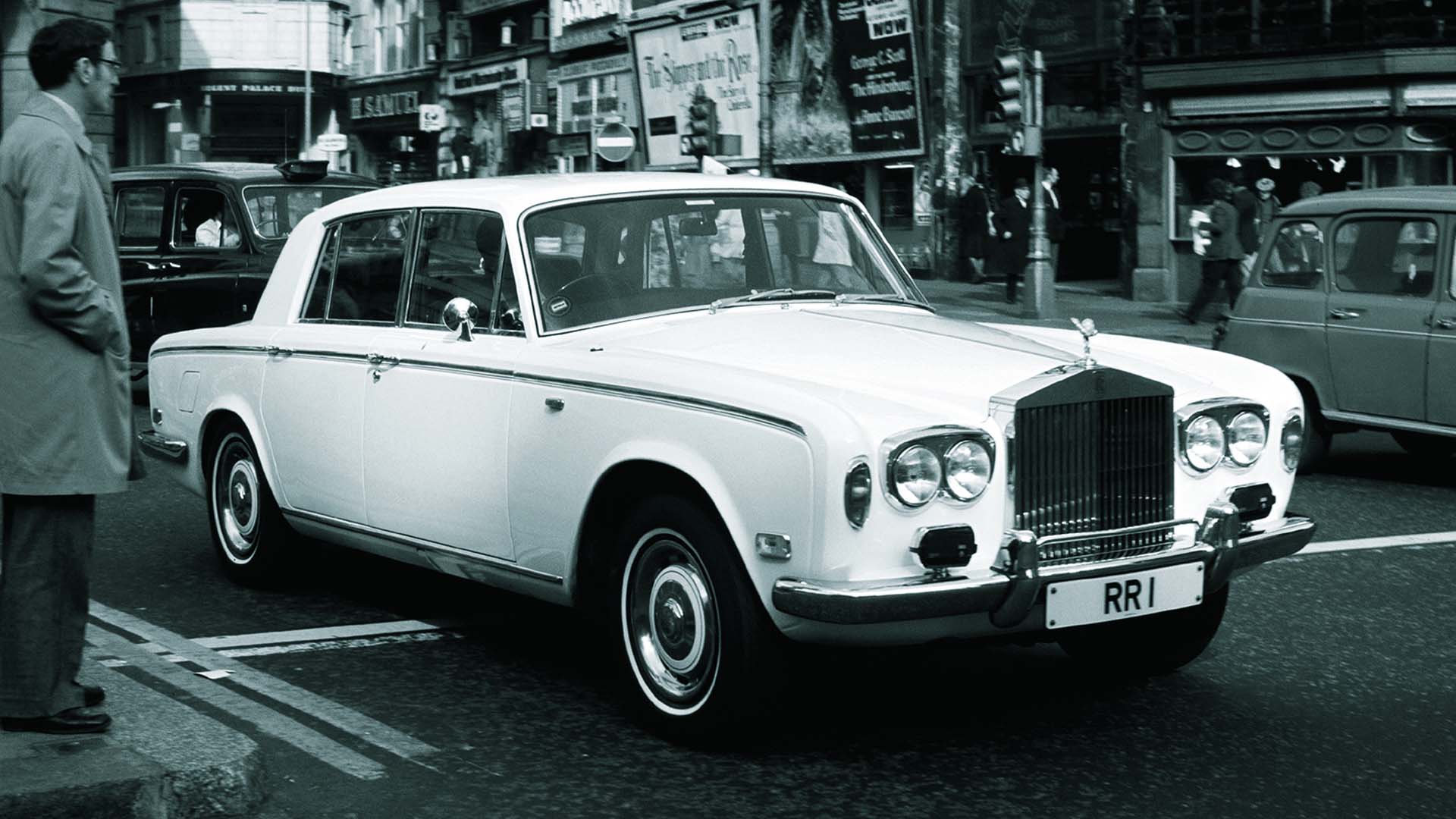
1965 – Rolls-Royce Silver Shadow
© Rolls-RoyceDoes the Rolls-Royce Silver Shadow deserve to be selected over the Renault 16? We’ll save that debate for another day, as we’ve chosen the Silver Shadow for its extraordinarily long production run, innovative construction and the fact that it was probably the best car in the world.
-
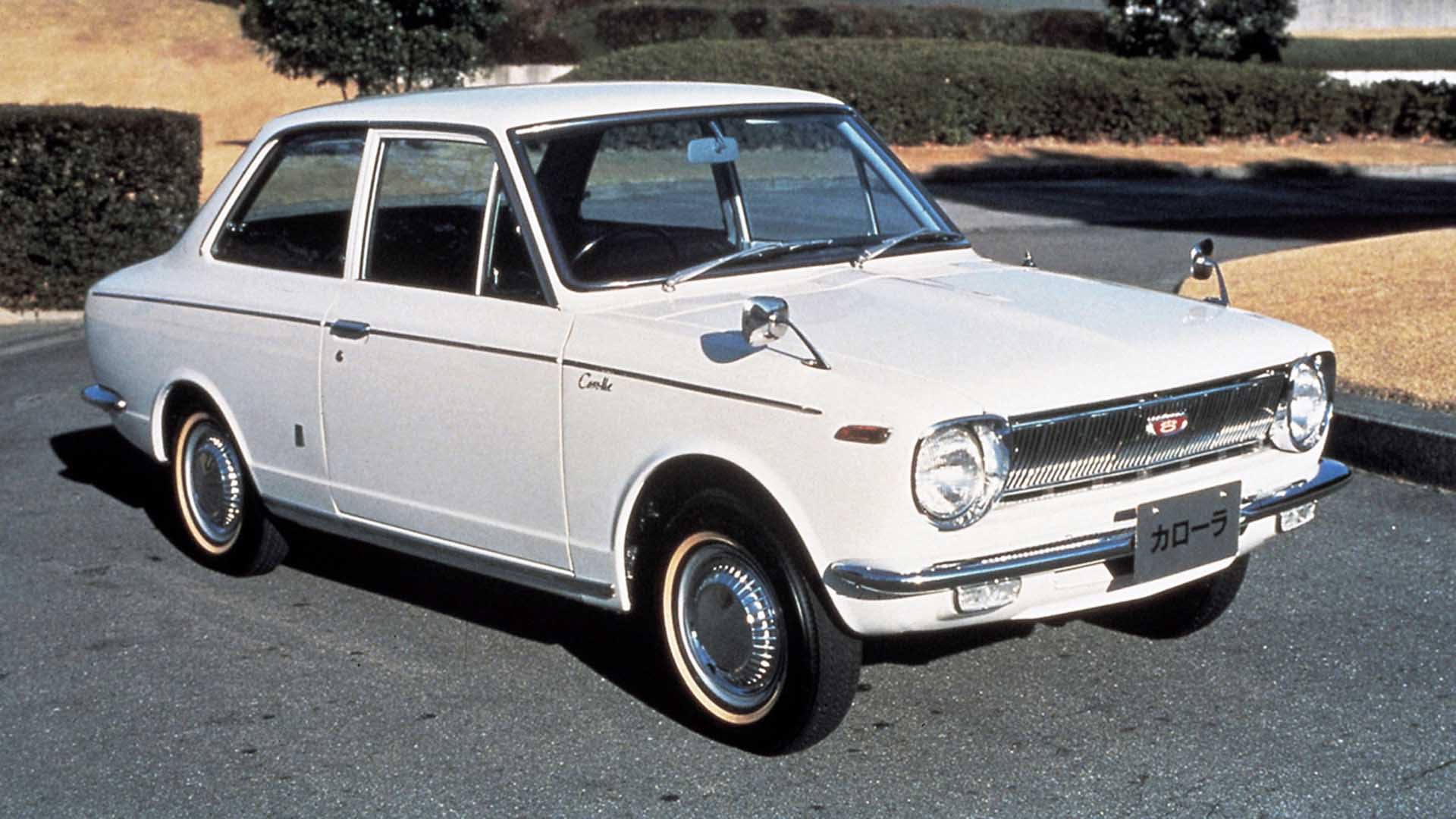
1966 – Toyota Corolla
© ToyotaFrom a car designed for the few to one aimed at the masses. The Toyota Corolla story begins with the E10 model of 1966, with the current version representing the 12th chapter of a remarkable career.
-
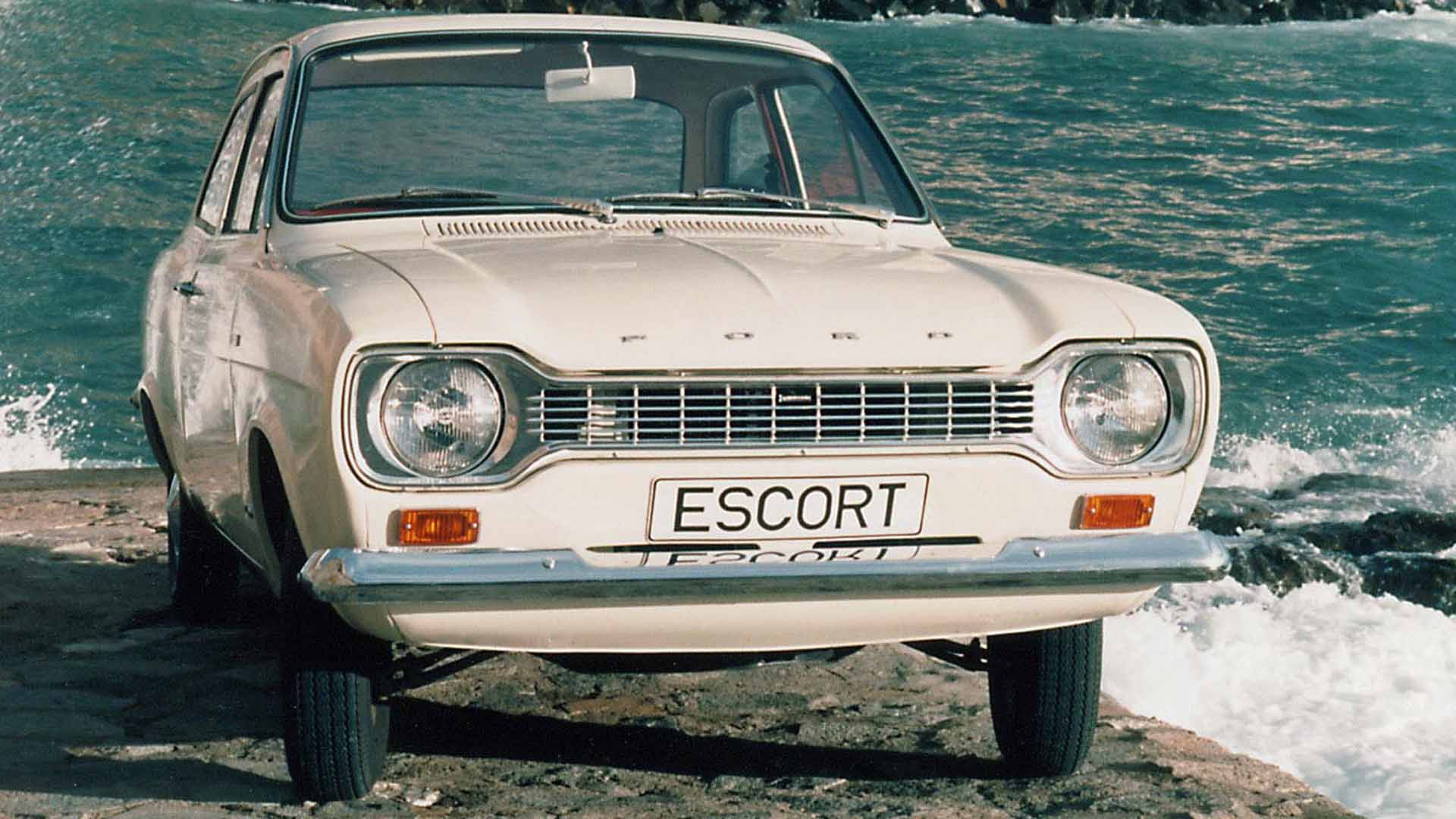
1967 – Ford Escort
© FordThe Ford Escort was introduced in the UK at the end of 1967, making its motor show debut in Brussels in January 1968. Although it had lost some of its, ahem, focus, by the end of the 1990s, it remains one of the most popular and best loved cars in Britain.
-
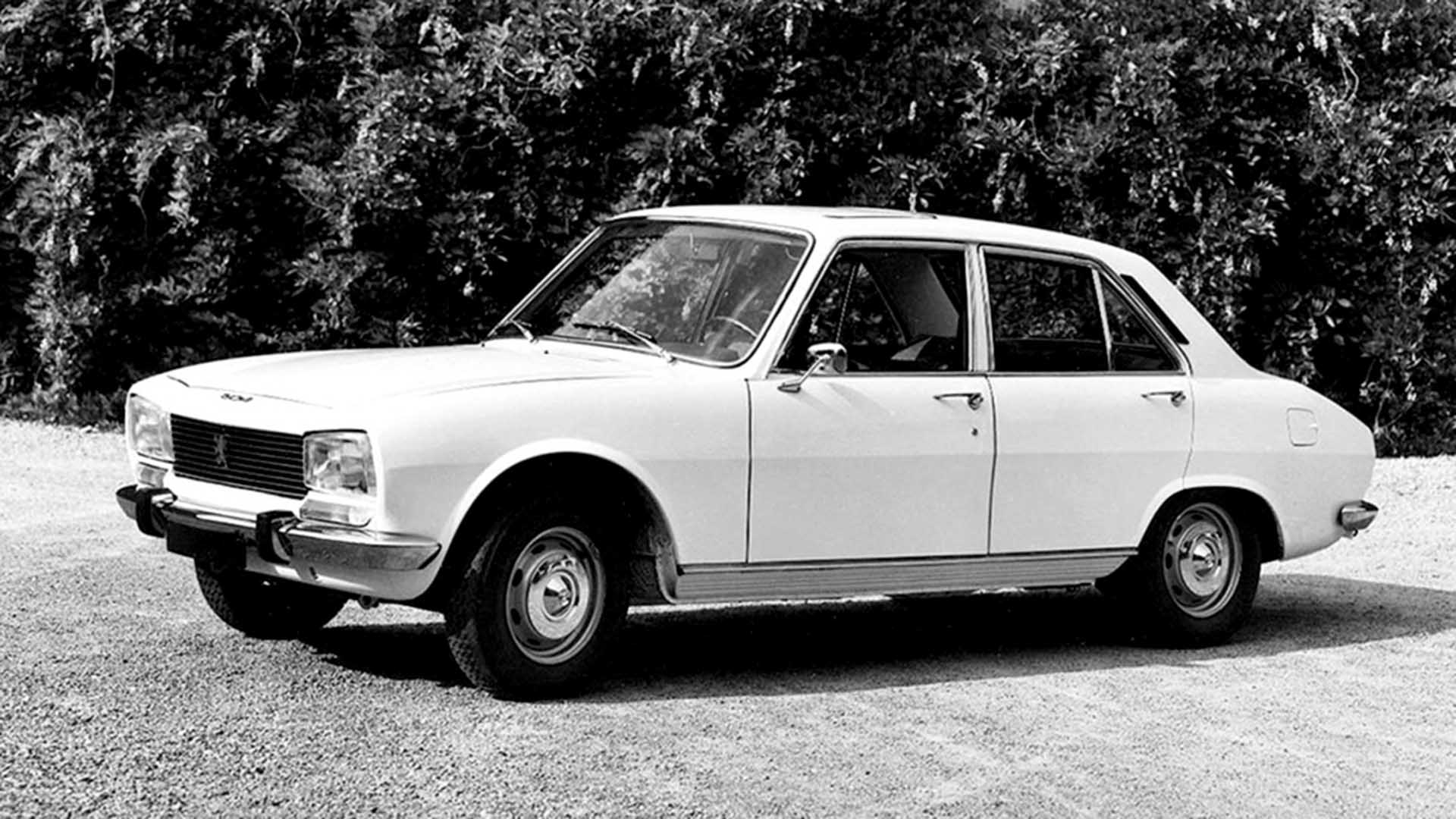
1968 – Peugeot 504
© PeugeotLaunched at the 1968 Paris Salon, the Peugeot 504 scooped the European Car of the Year award in 1969. Produced at plants across the world, the 504 spawned many different versions, including the beautiful coupe and convertible models. In 2013, the Los Angeles Times called it ‘Africa’s workhorse’.
-
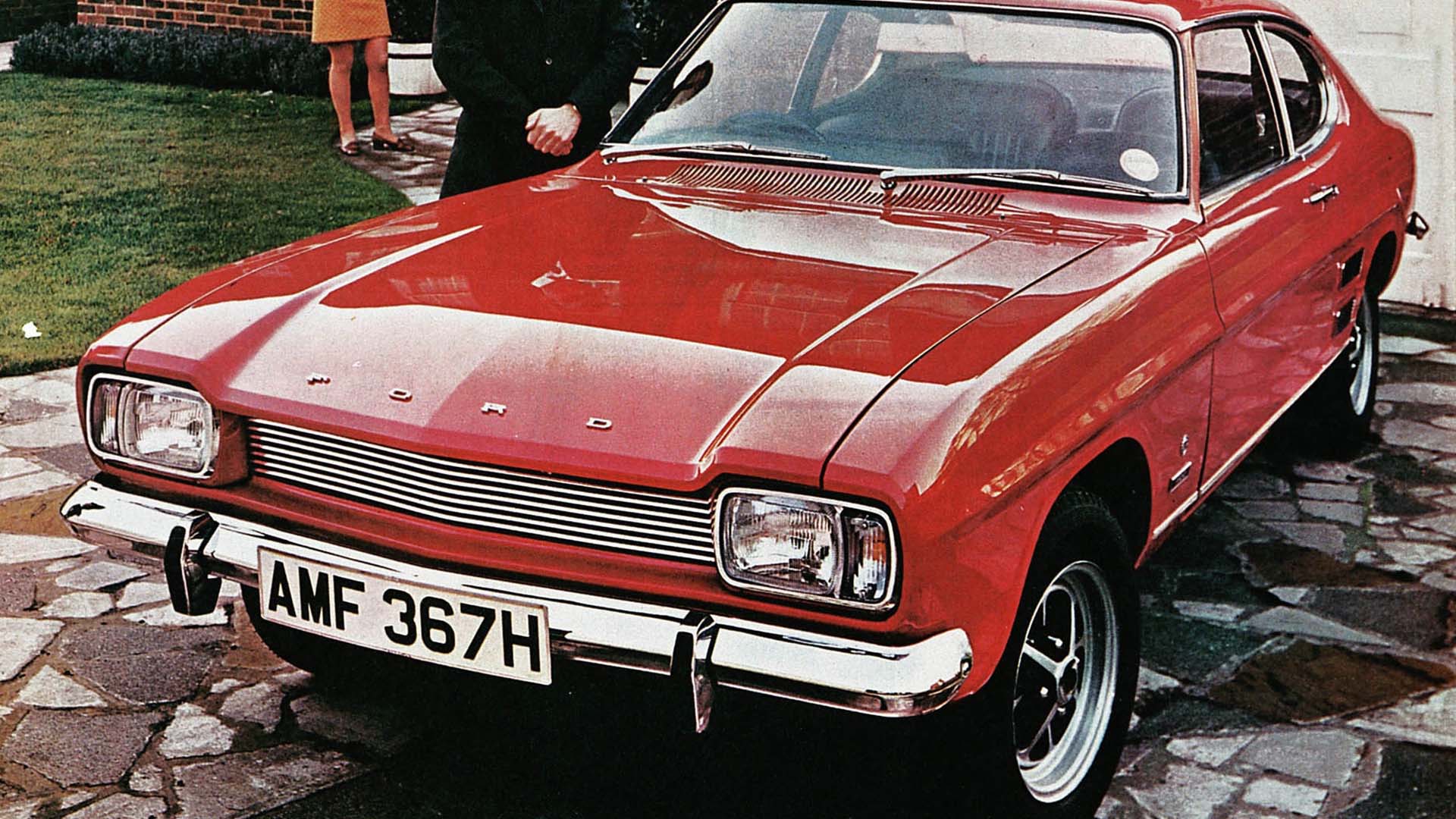
1969 – Ford Capri
© FordThe car you always promised yourself was born in 1969. Europe’s answer to the Ford Mustang enjoyed a long production run, before the final Capri 280 left the factory in Cologne in December 1986.
-
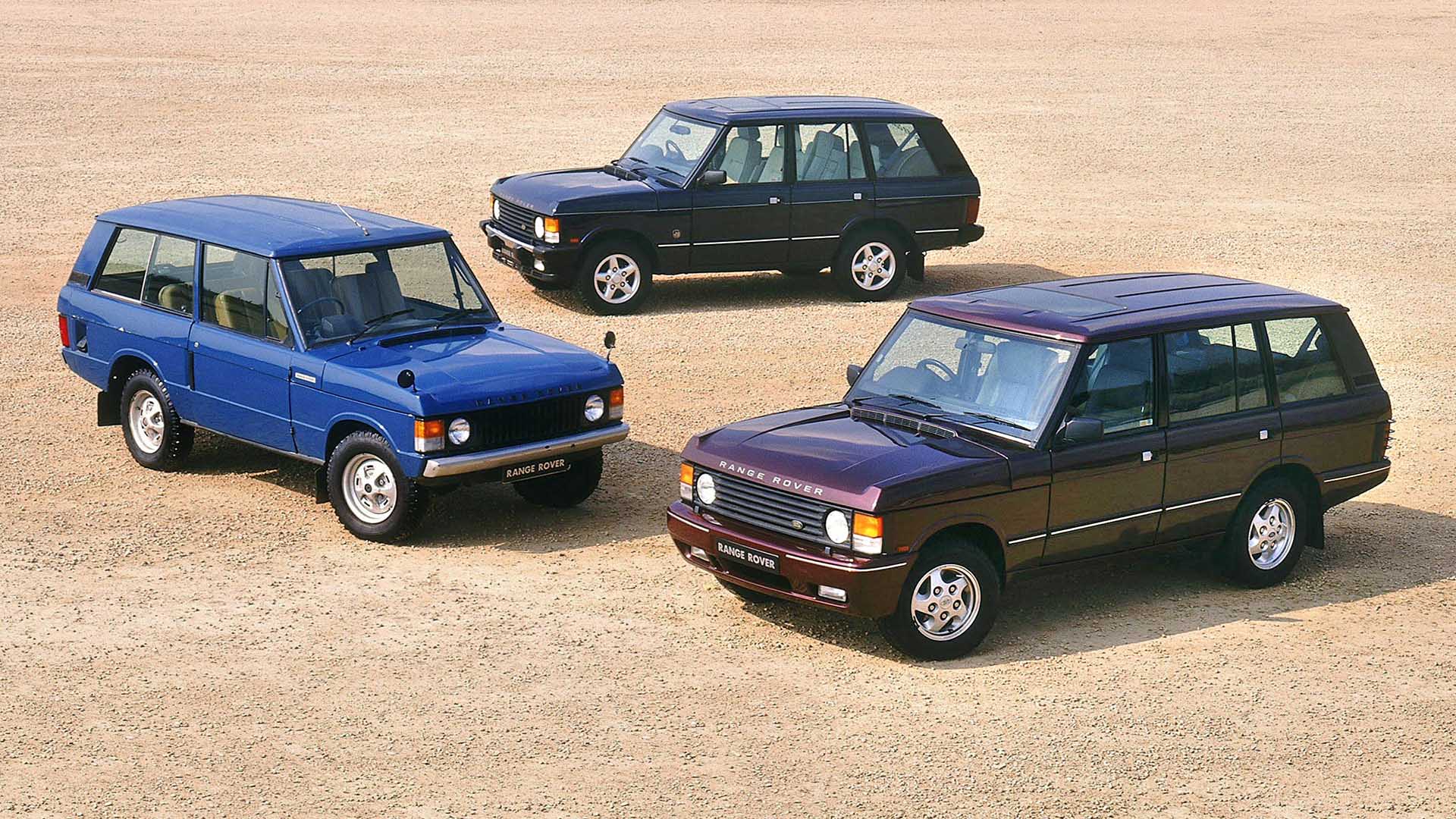
1970 – Range Rover
© Land RoverOf all the years, 1970 is arguably the toughest. We’ve selected the Range Rover, but we could have chosen the Citroen GS, Citroen SM, Alfa Romeo Montreal or Opel Manta. Heck, even the Bond Bug was in with a shout.
-
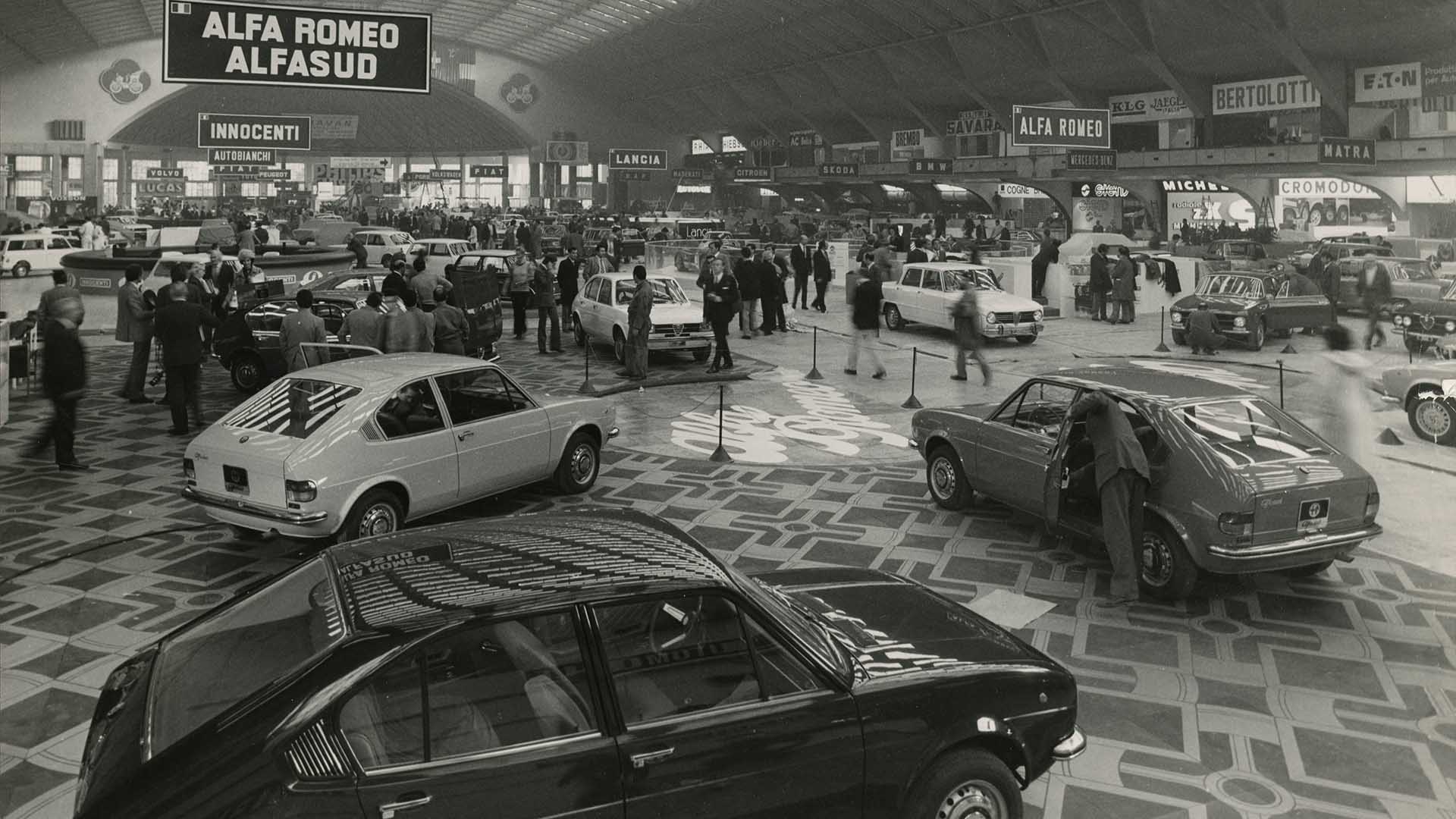
1971 – Alfa Romeo Alfasud
© Alfa RomeoOf all the cars launched in 1971, two stand out above the others. The Morris Marina symbolised everything that was wrong with the British car industry, while the Alfasud was arguably the last truly great Alfa Romeo.
-
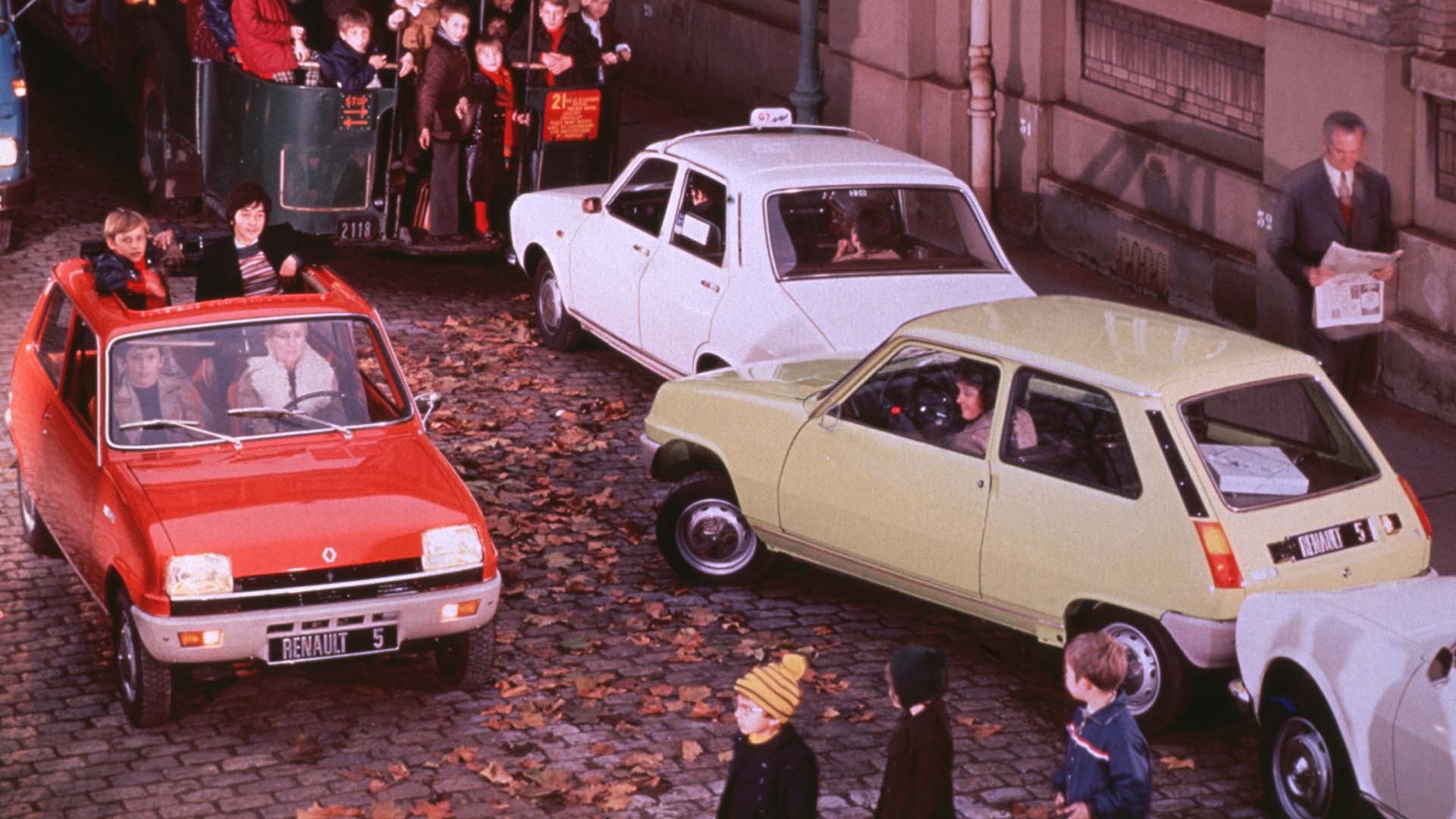
1972 – Renault 5
© RenaultThe original Renault 5 was so modern and innovative that production continued until 1984. By that time, some 5.47 million had been produced. Its replacement, the Supercinq, lived on until 1996.
-
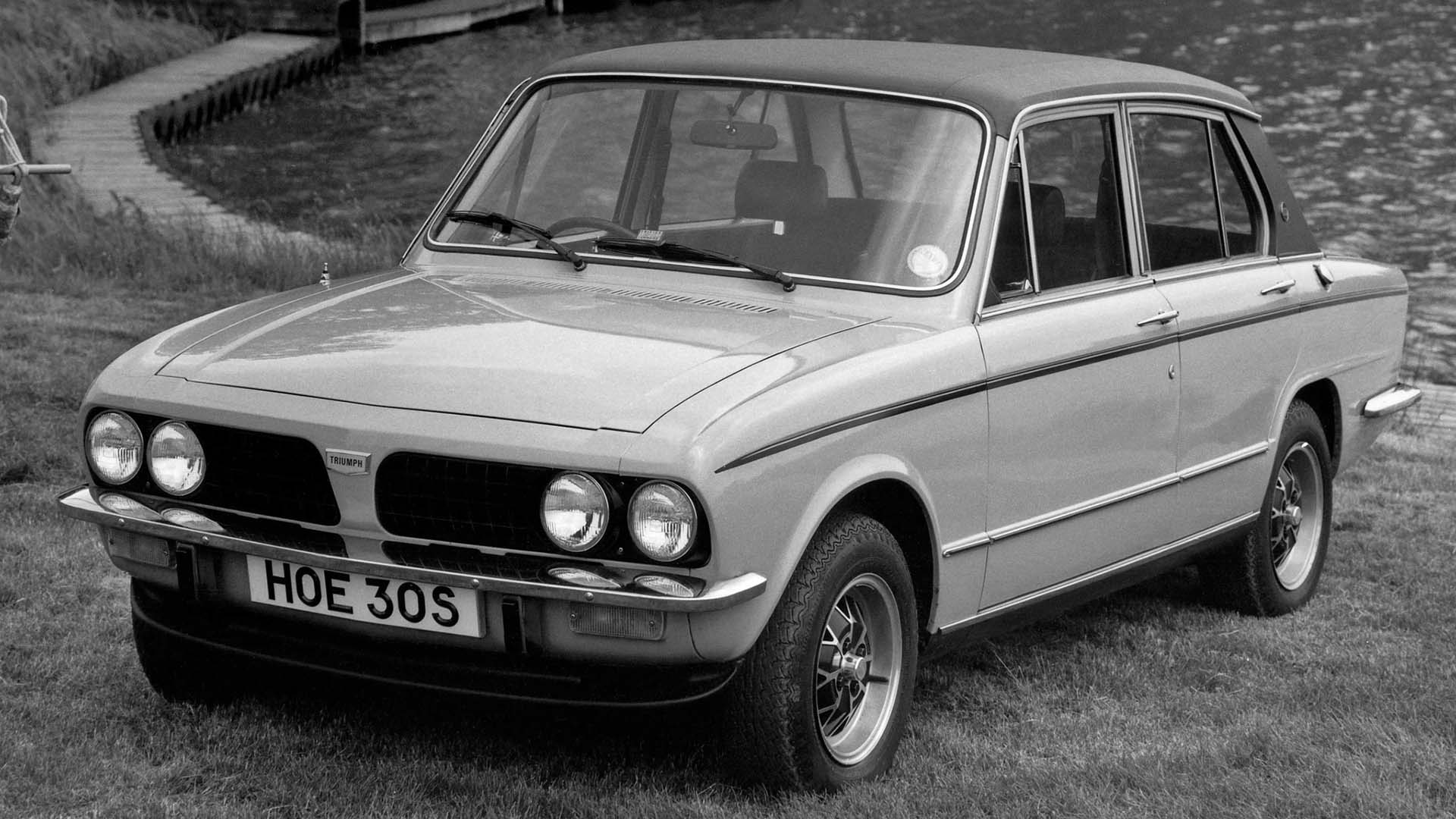
1973 – Triumph Dolomite Sprint
© TriumphWe could have selected the Austin Allegro to paint another picture of the downfall of the British car industry. Instead, let us celebrate the Triumph Dolomite Sprint as an example of Britain getting it right.
-
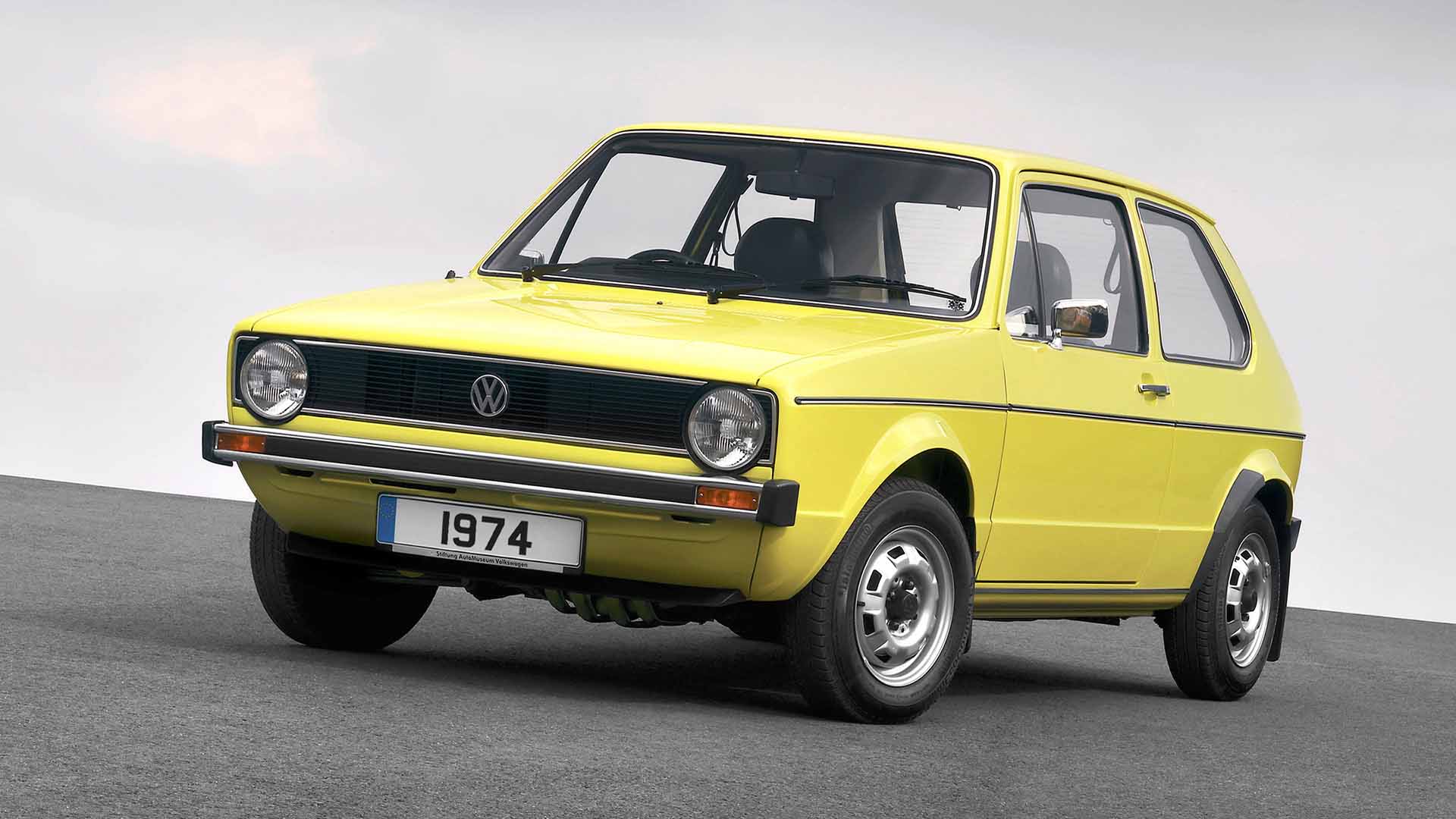
1974 – Volkswagen Golf
© VolkswagenWhat else but the Volkswagen Golf for 1974? Now on its eighth generation, the Golf is one of the most recognisable cars on the planet. Does the launch of the ID.3 electric car signal that time is running out for the popular family hatchback?
-
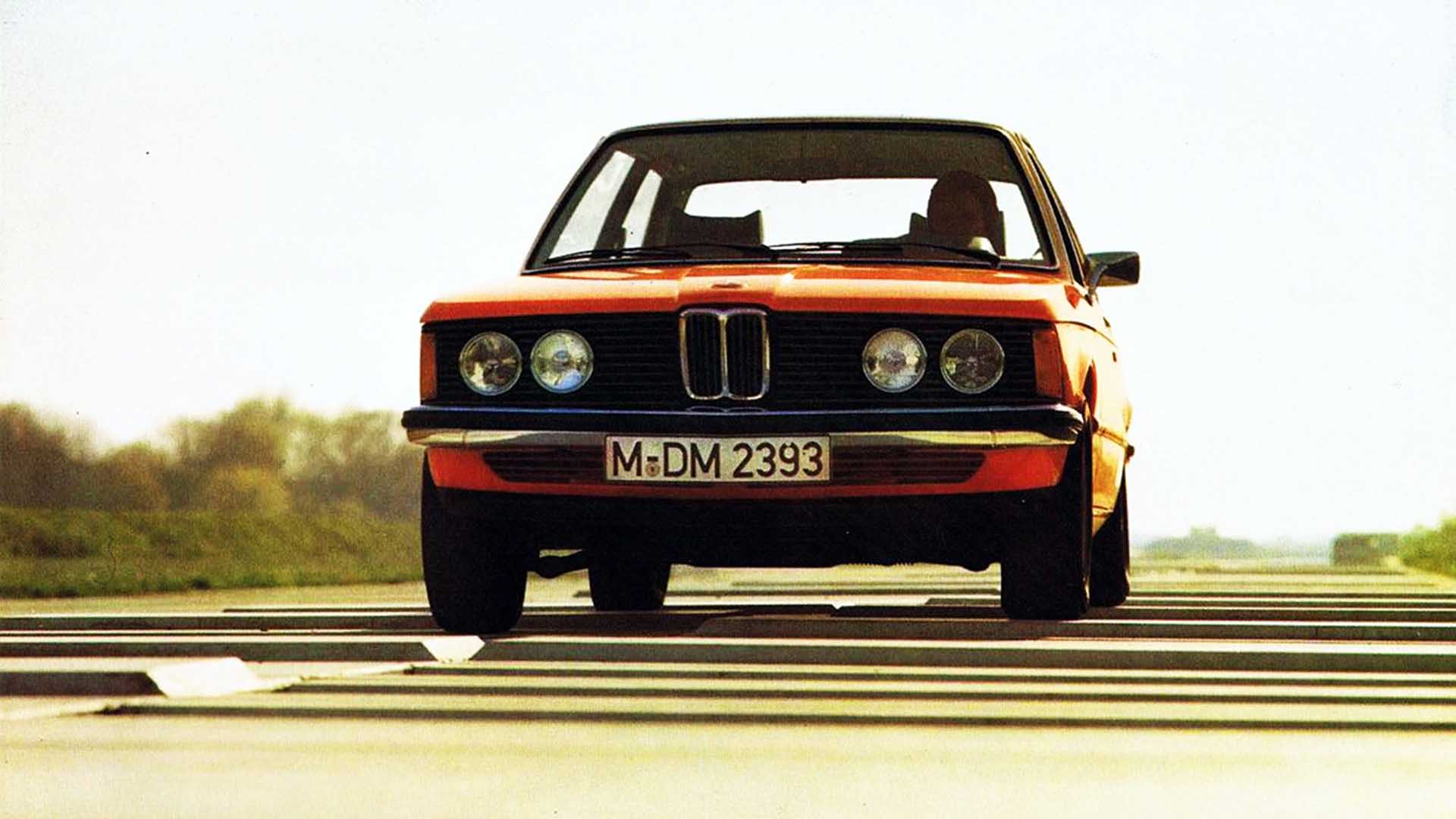
1975 – BMW 3 Series
© BMWThe original BMW 3 Series (E21) showed the world how to build a compact saloon car. Good looking, great to drive and available with a range of engines, the 3 Series remains the blueprint for compact executive saloons with sporting appeal.
-
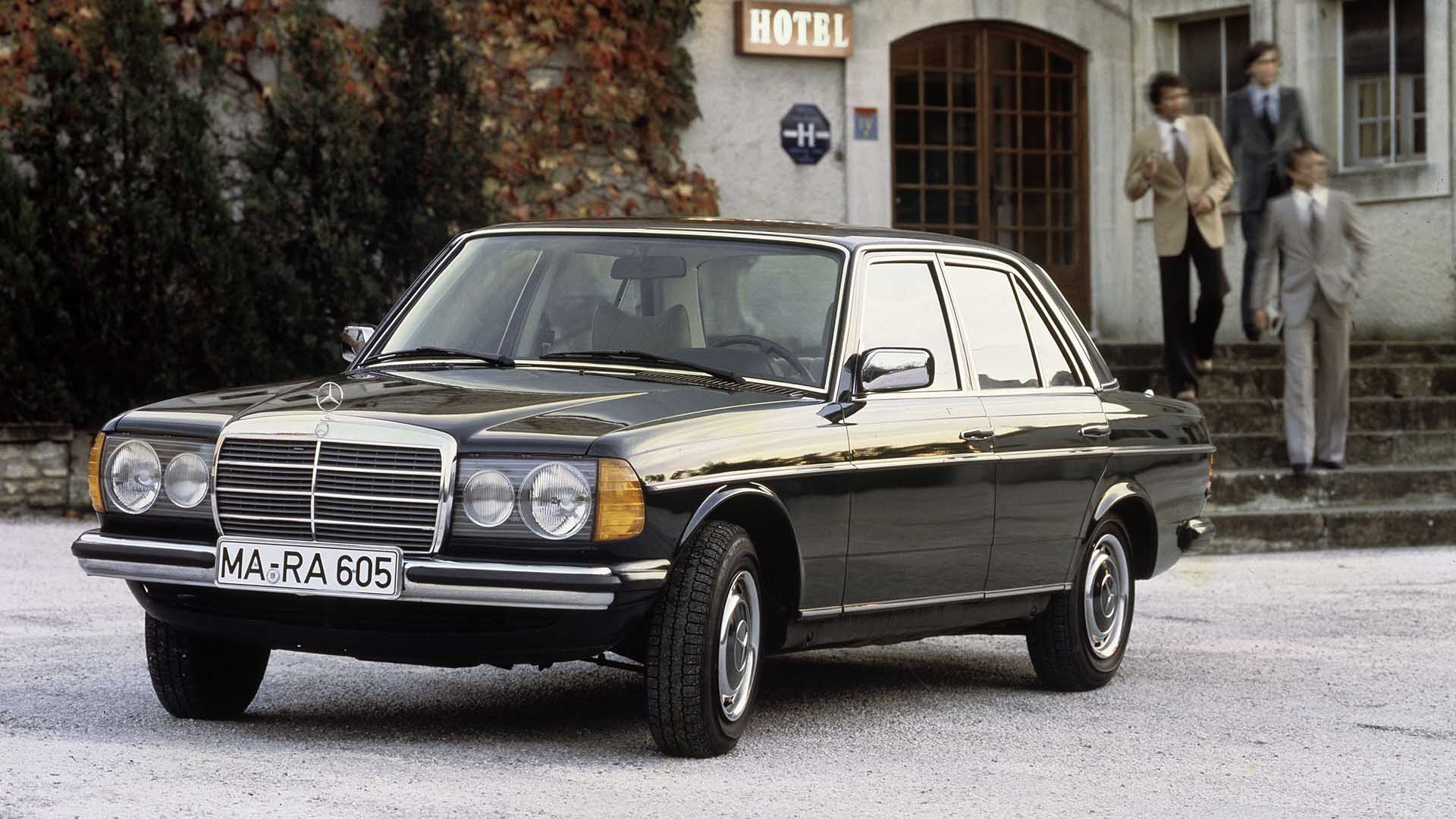
1976 – Mercedes-Benz W123
© DaimlerMercedes-Benz left nothing to chance in the development of the W123. The forerunner to the E-Class – available in saloon, estate and coupe forms – is recognisable the world over. A modern classic you can use every day.
-
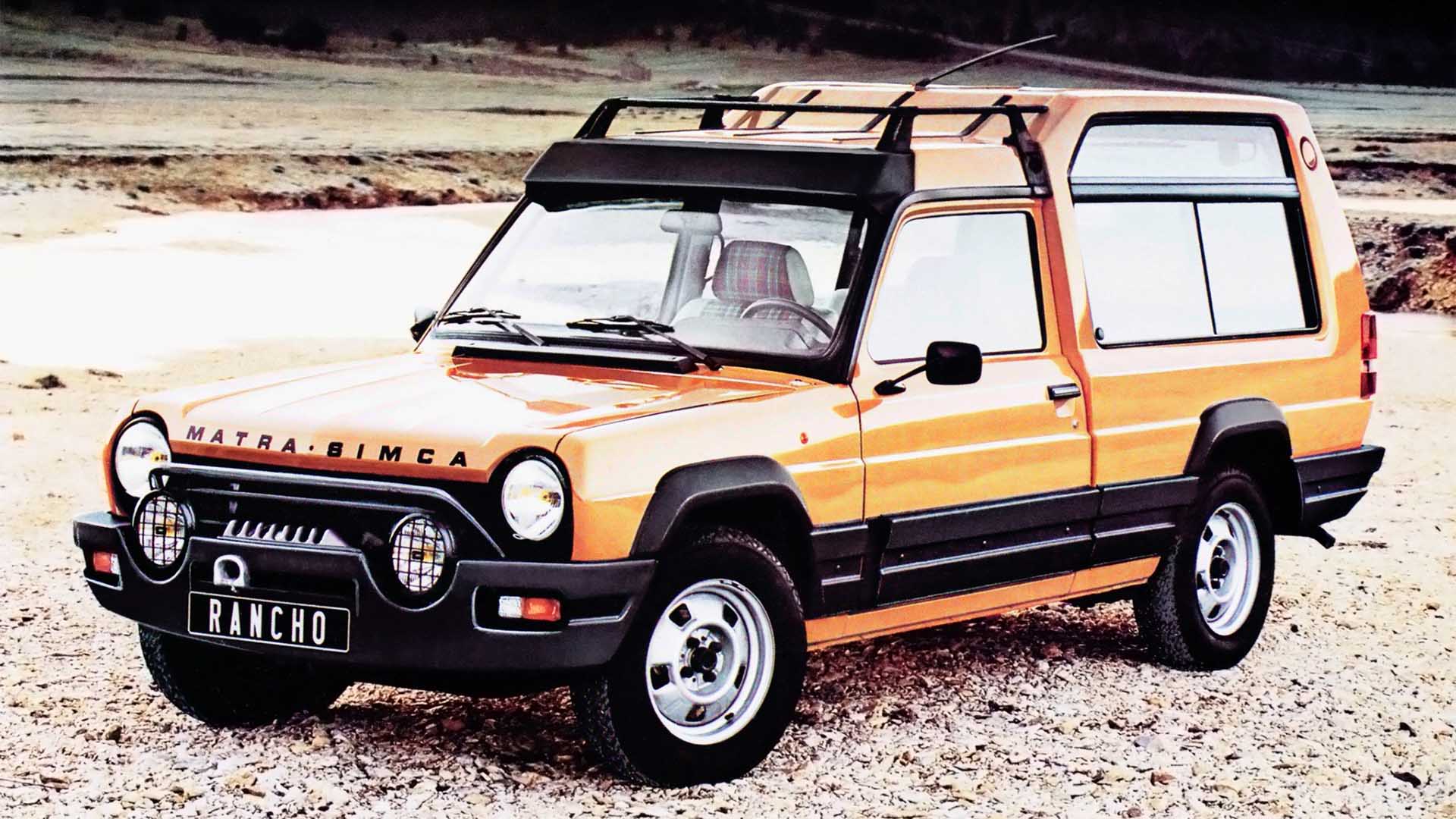
1977 – Matra Rancho
© MatraThe significance of the Matra Rancho shouldn’t be underestimated. A lifestyle crossover before the lifestyle crossover was a thing, the Rancho was designed for high street posing rather than off-roading. The modern crossover owes a debt to the Rancho.
-
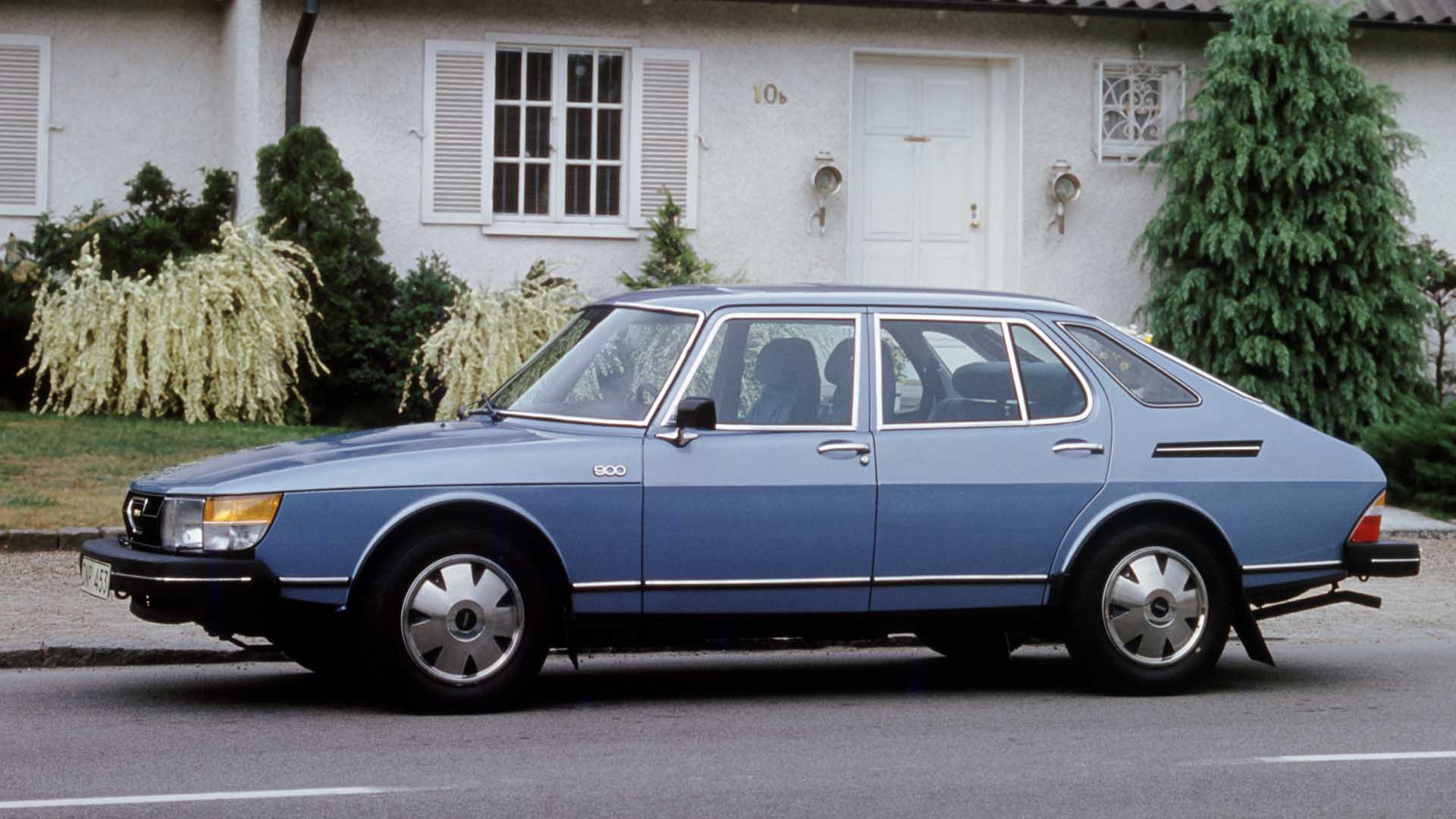
1978 – Saab 900
© SaabThis was another good year. We could have chosen the BMW M1, Fiat Ritmo (Strada), Mazda RX-7 or the influential Lancia Megagamma. Instead, we’ve opted for the Saab 900 as an example of a company prepared to think differently. It also pioneered the idea of taking turbocharging to the masses, building on the success of the 99 Turbo.
-
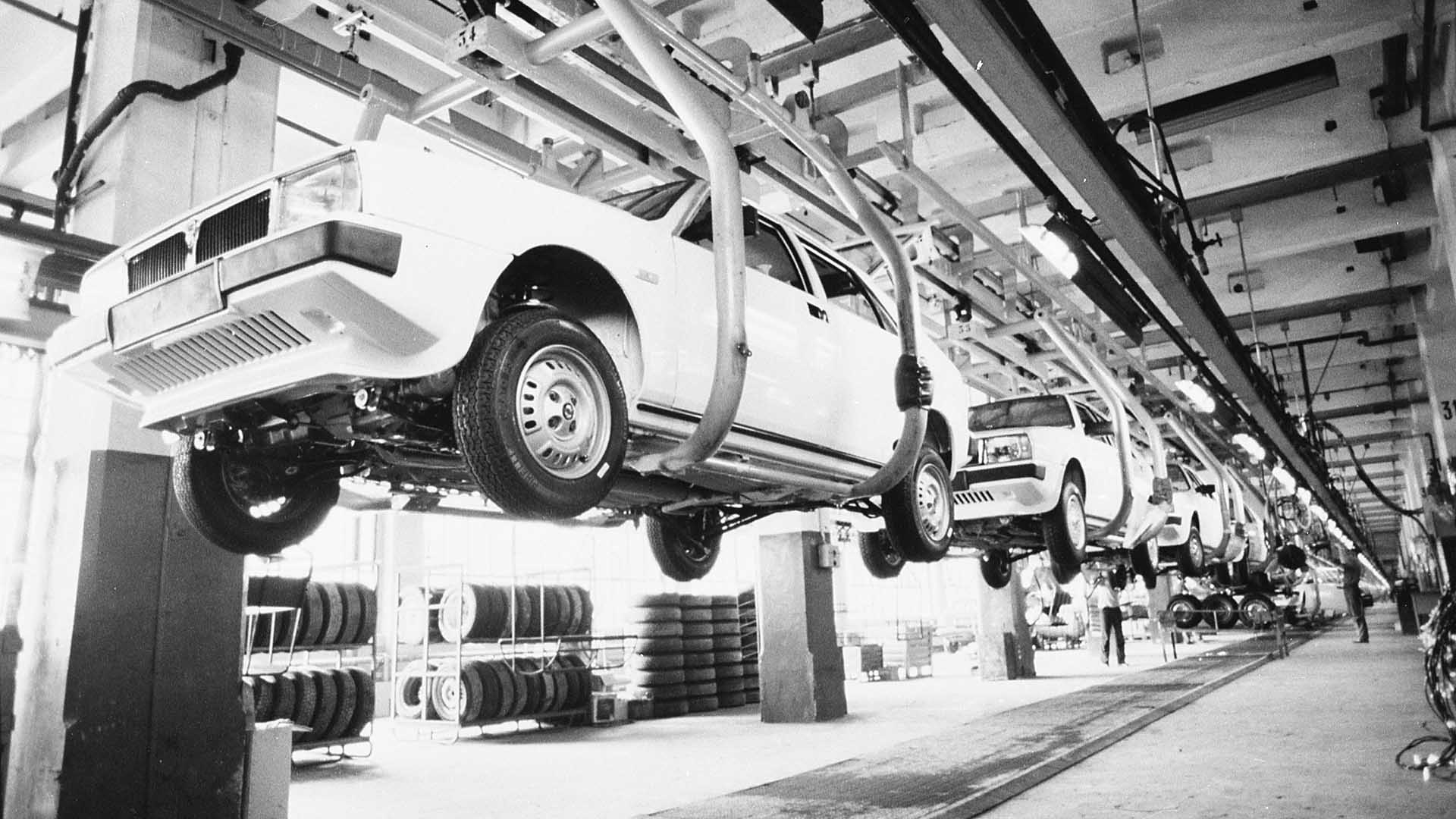
1979 – Lancia Delta
© LanciaSuccess in world rallying is the first thing that most people think of when you mention the Lancia Delta. Not surprising, given the Delta’s dominance of the sport in the late 1980s and early 1990s. In its standard form, the Giugiaro-designed Delta remains an elegant and practical family hatchback.
-
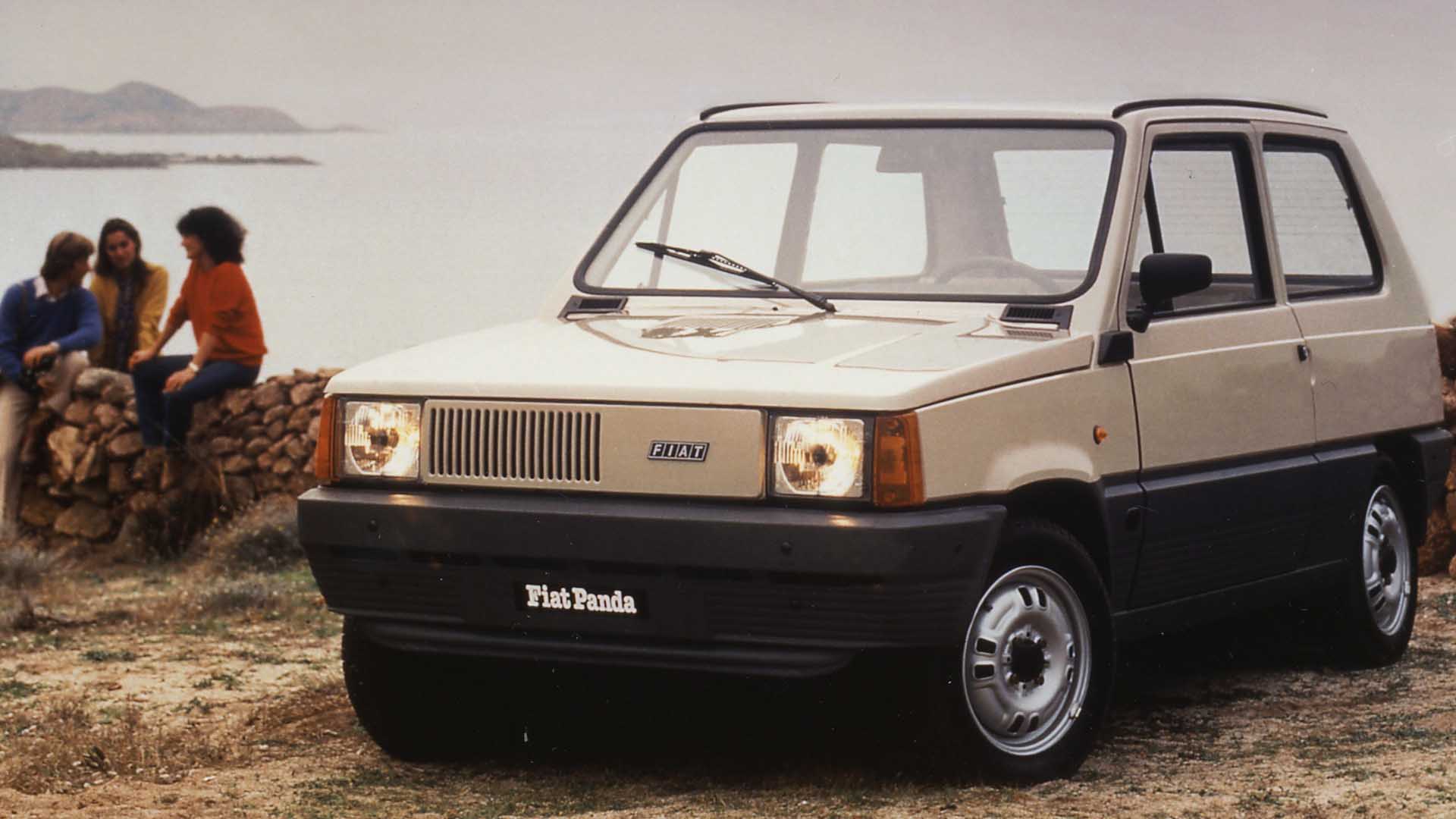
1980 – Fiat Panda
© FiatSome will cry foul at our decision to select the Fiat Panda over the Audi Quattro, but the Italian gets the nod for its brilliant design and packaging. Either way, you share your birthday with two influential and significant cars.
-
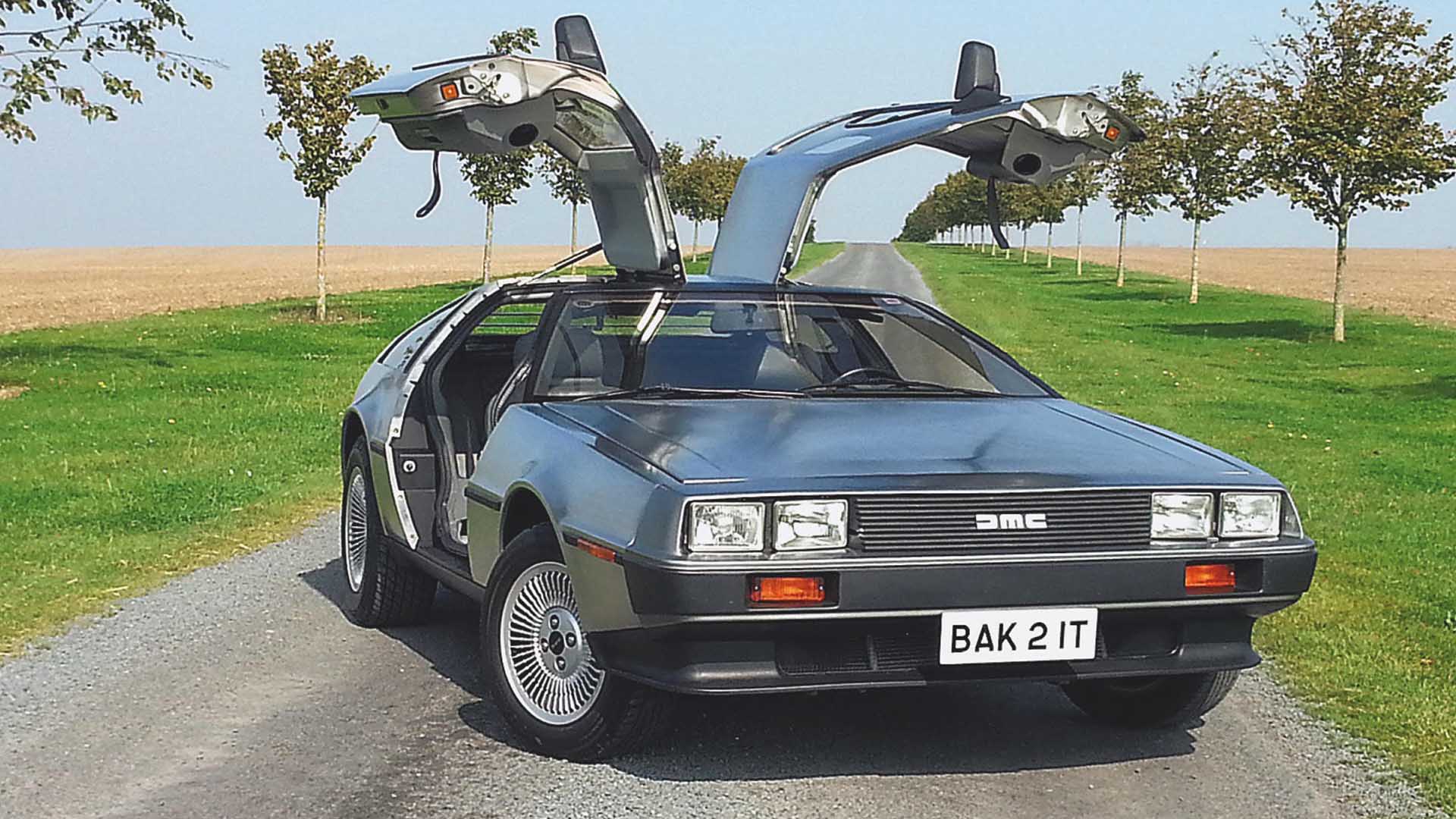
1981 – DeLorean DMC-12
© VeloceIt would be harsh to say that, when judged as a car, the DeLorean DMC-12 doesn’t deserve its place on the big automotive pedestal, but its fame is based on external factors. John DeLorean, politics, Northern Ireland and a certain movie franchise are just some of the cars that make the DMC-12 story so intriguing.
-
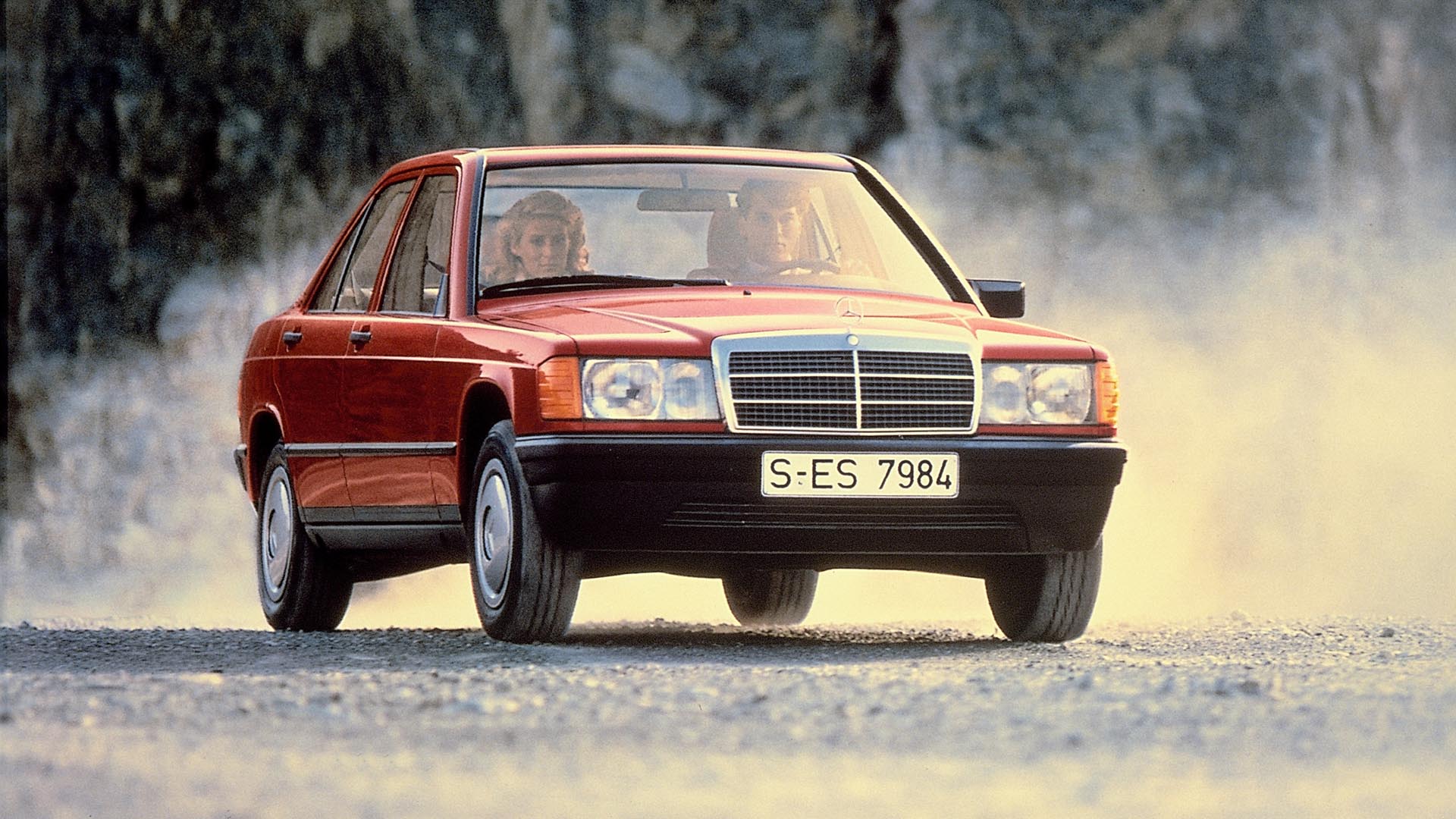
1982 – Mercedes-Benz W201
© DaimlerThe ‘Baby Benz’ was one of the most significant cars of the 1980s. Launched as a rival to the BMW 3 Series, the W201 was a semi-affordable alternative to the E-Class and S-Class models. We could have chosen the Citroen BX, Ford Sierra or Nissan Micra.
-
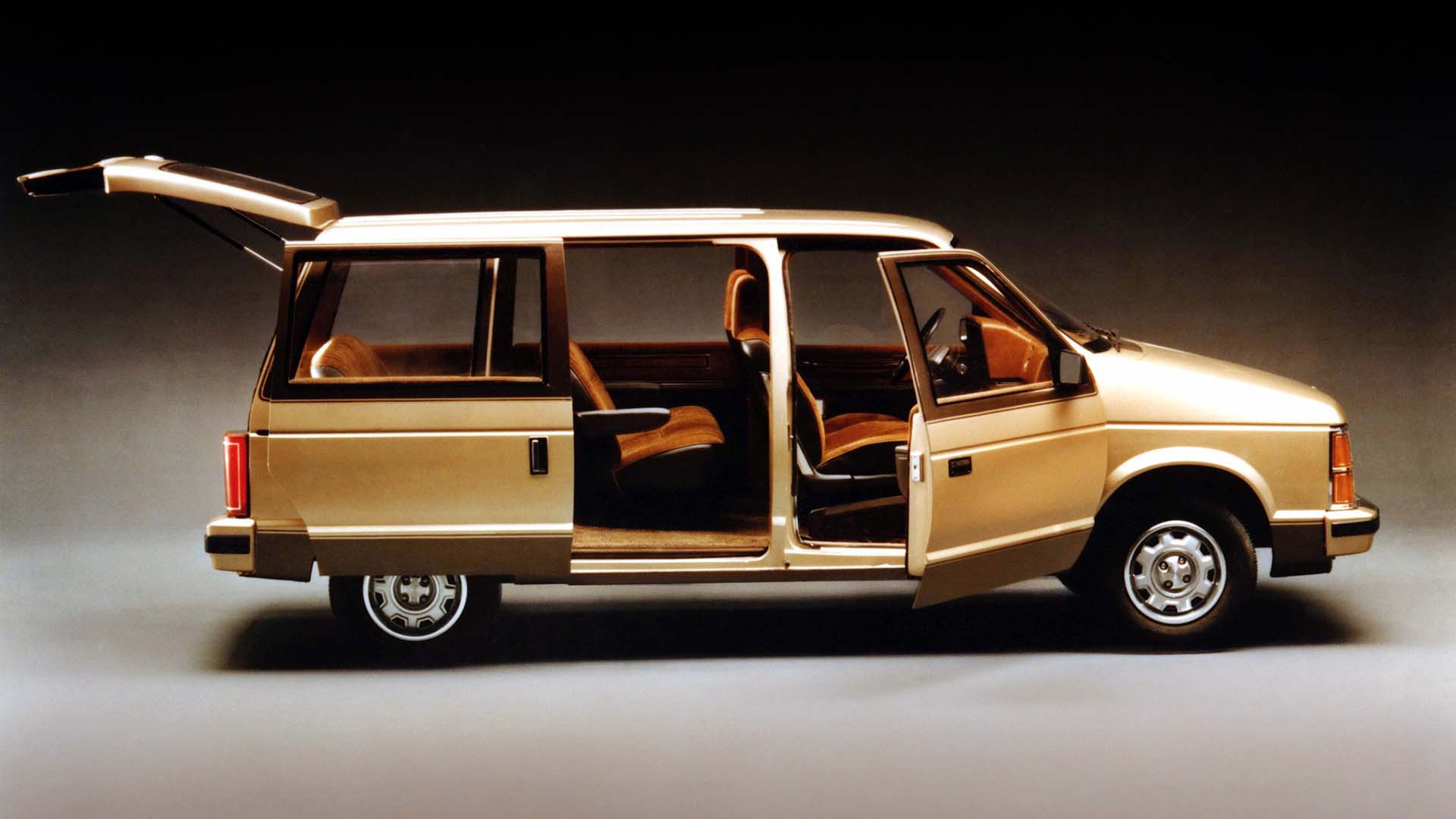
1983 – Chrysler minivans
© ChryslerThe first Chrysler minivan rolled off the Ontario production line in November 1983. It was the birth of the modern minivan or MPV, with rival companies rushing to build people carriers of their own.
-
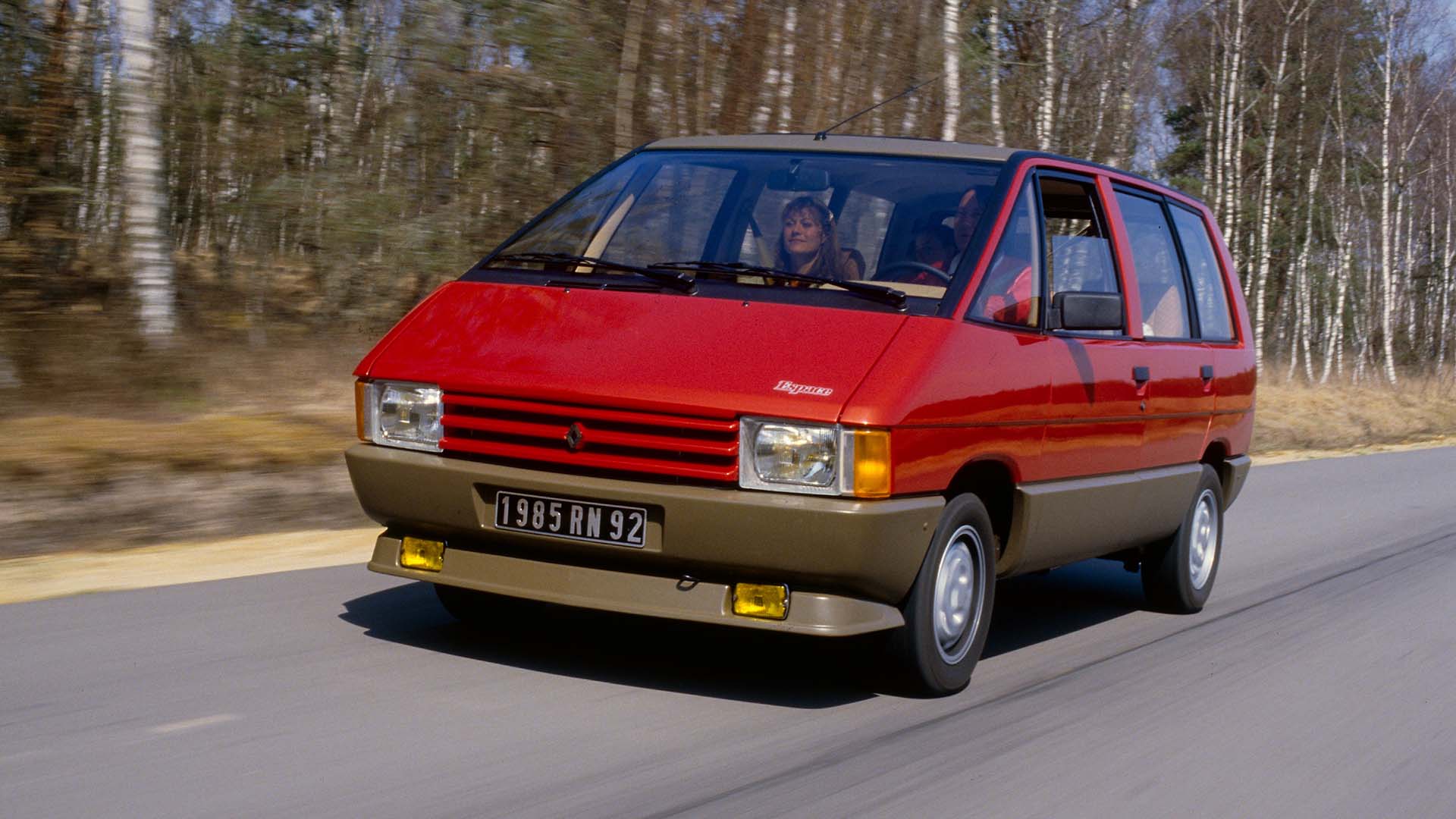
1984 – Renault Espace
© RenaultArriving around six months after the Dodge Caravan and Plymouth Voyager, the Renault Espace was the first European car to be built from the ground up as a people carrier. It changed the shape of family motoring in Europe.
-
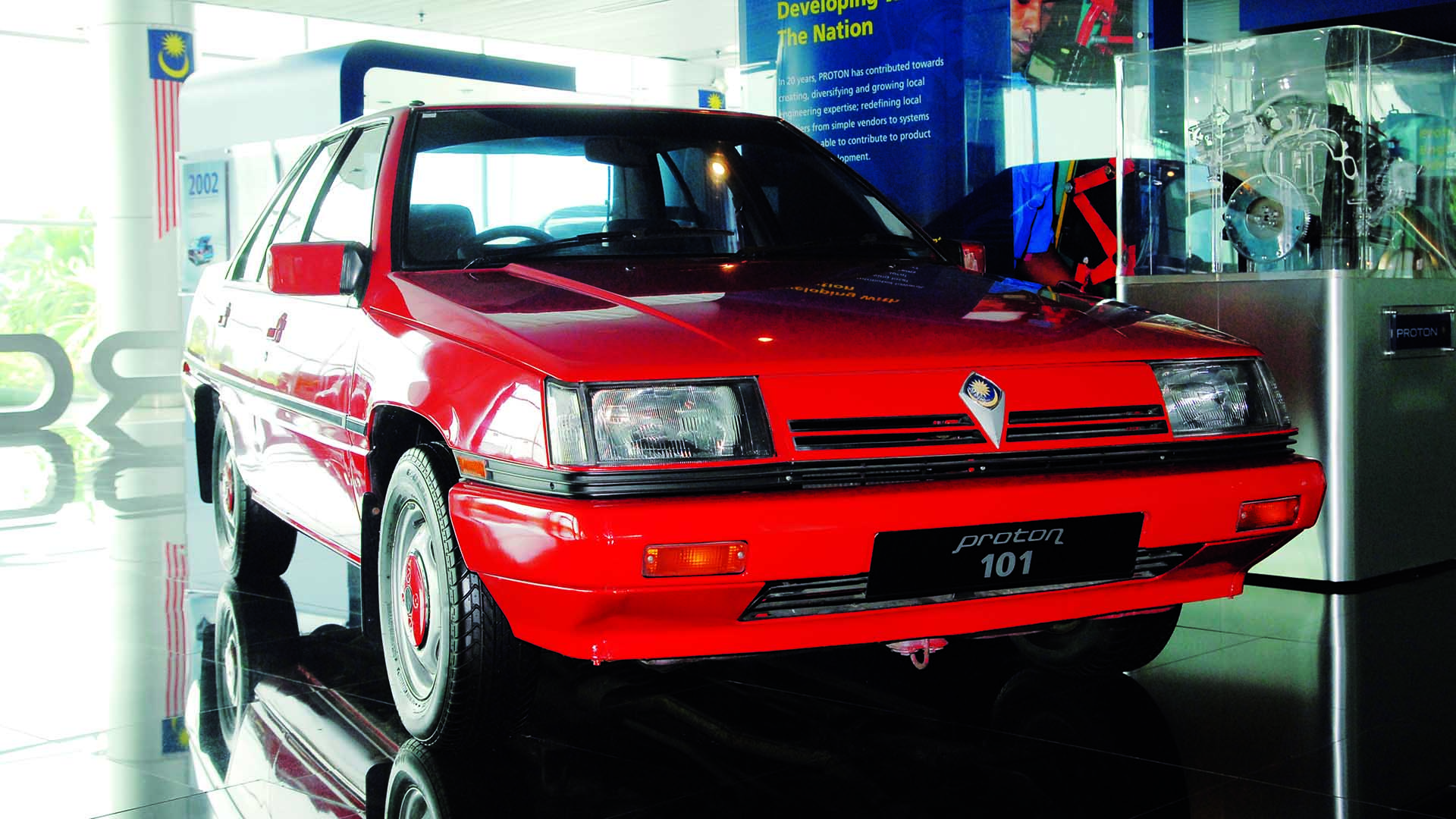
1985 – Proton Saga
© ProtonAs Proton’s first car, the Saga warrants a place in the big book of automotive history. Malaysia’s first automotive company was founded in 1983, with the Saga arriving just two years later. In 1989, Proton arrived in the UK to shake up the budget end of the new car market.
-
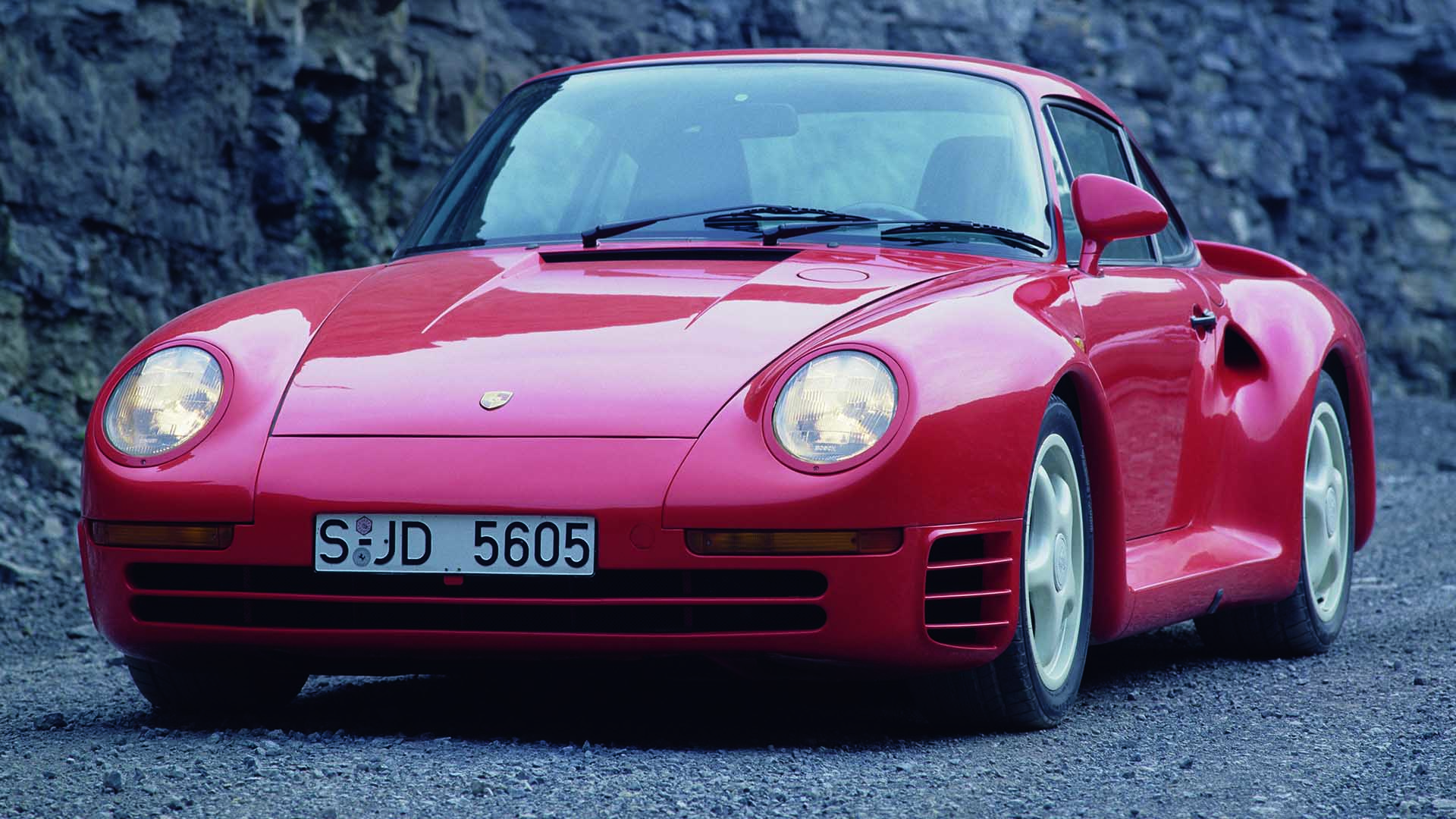
1986 – Porsche 959
© PorscheA technical tour de force and a blueprint for supercars of the future, the Porsche 959 became the pin-up star for a generation of young petrolheads. Porsche made a loss on every 959 it sold.
-
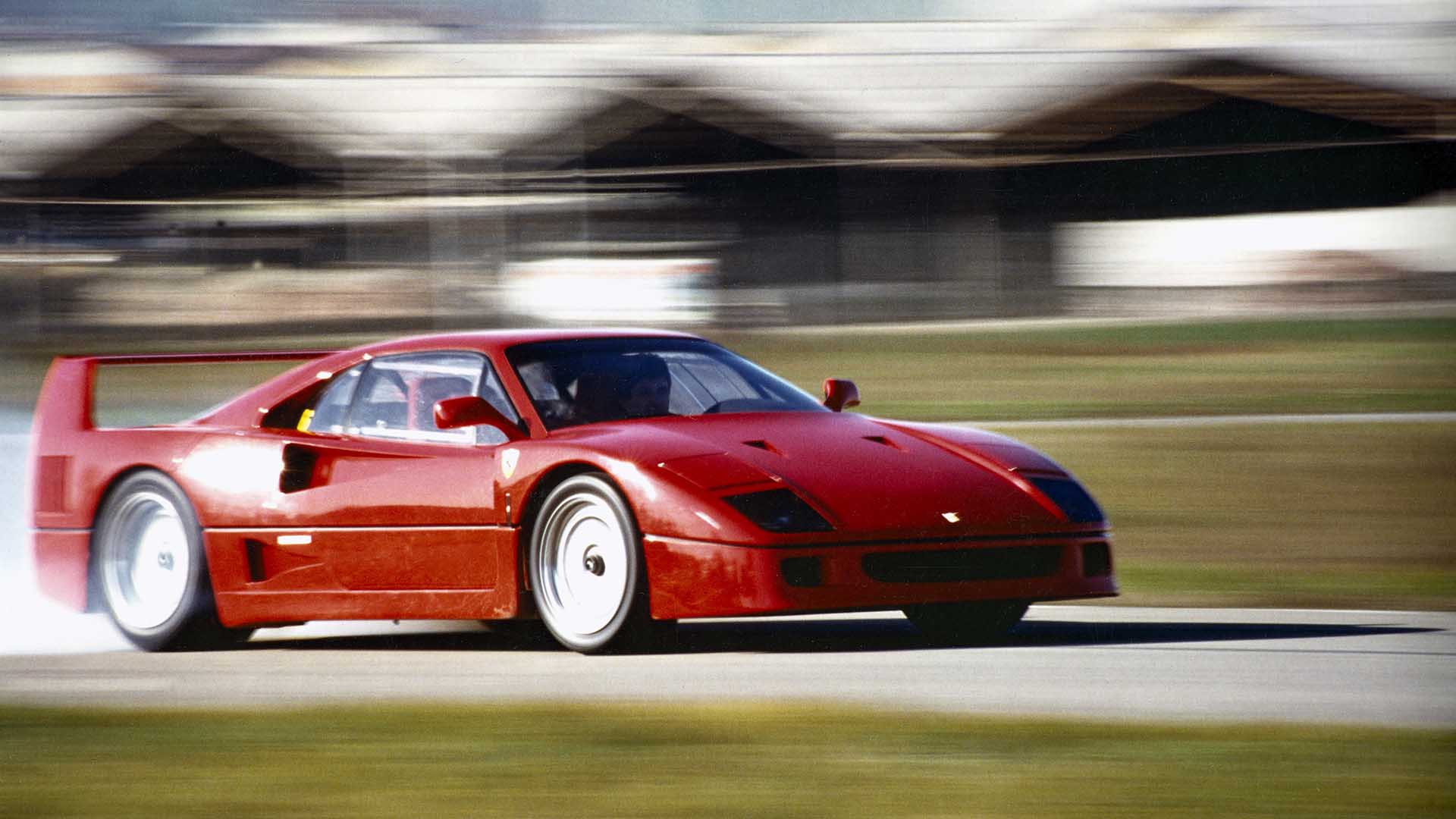
1987 – Ferrari F40
© FerrariIf the Porsche 959 was the digital supercar, the Ferrari F40 had a more analogue feel. A proper race car for the road, with extensive use of composite materials for the chassis, a glassfibre body and a stripped-back interior. Oh, and the small matter of a twin-turbocharged V8 engine.
-
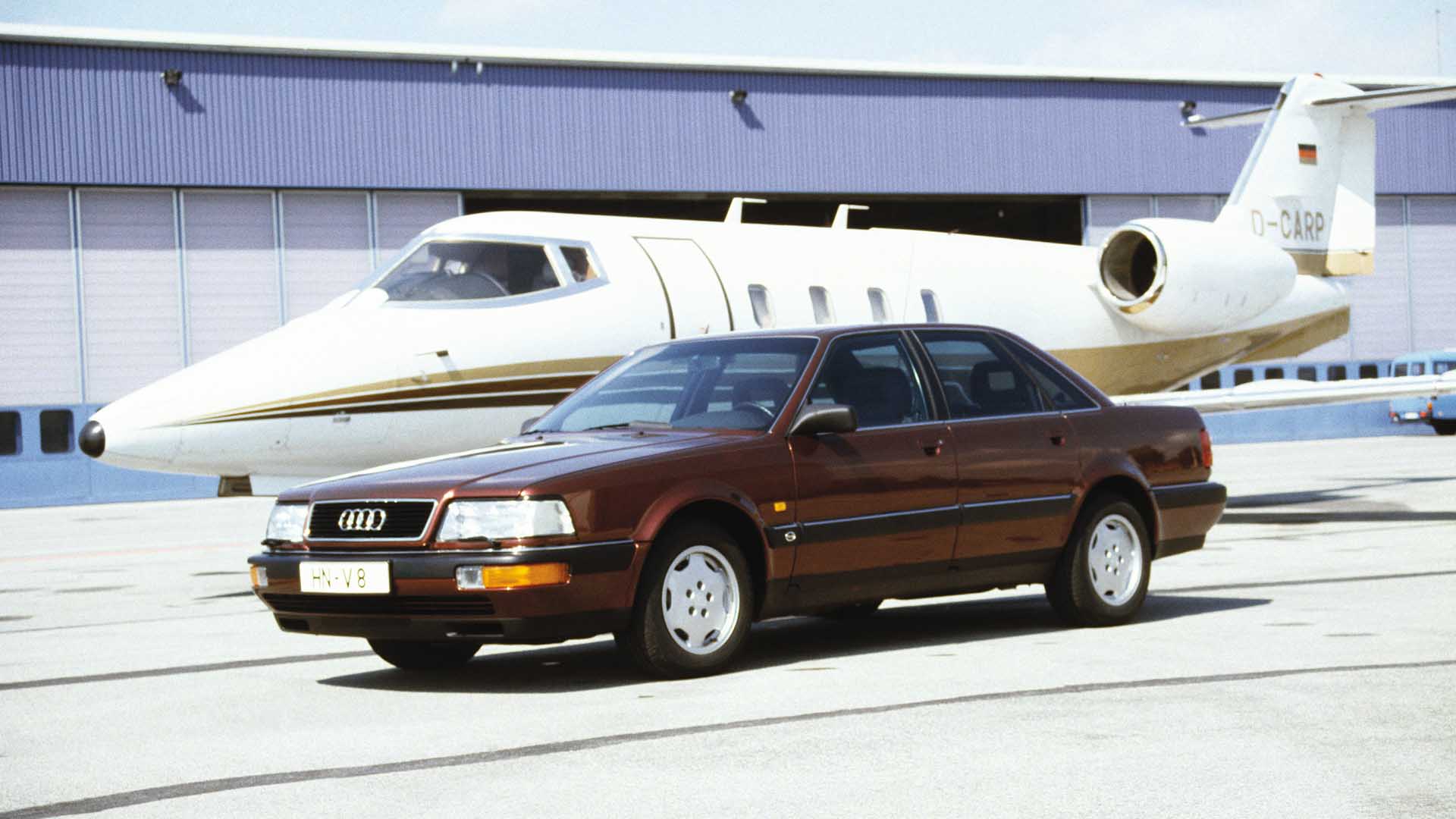
1988 – Audi V8
© AudiThe BMW Z1, Suzuki Vitara, Volkswagen Corrado and even the Honda Concerto were possibilities for 1988. We’ve chosen the Audi V8 for its role as the forerunner to the A8. As Audi’s first proper flagship model, it’s very much a forefather of the current breed of Audis.
-
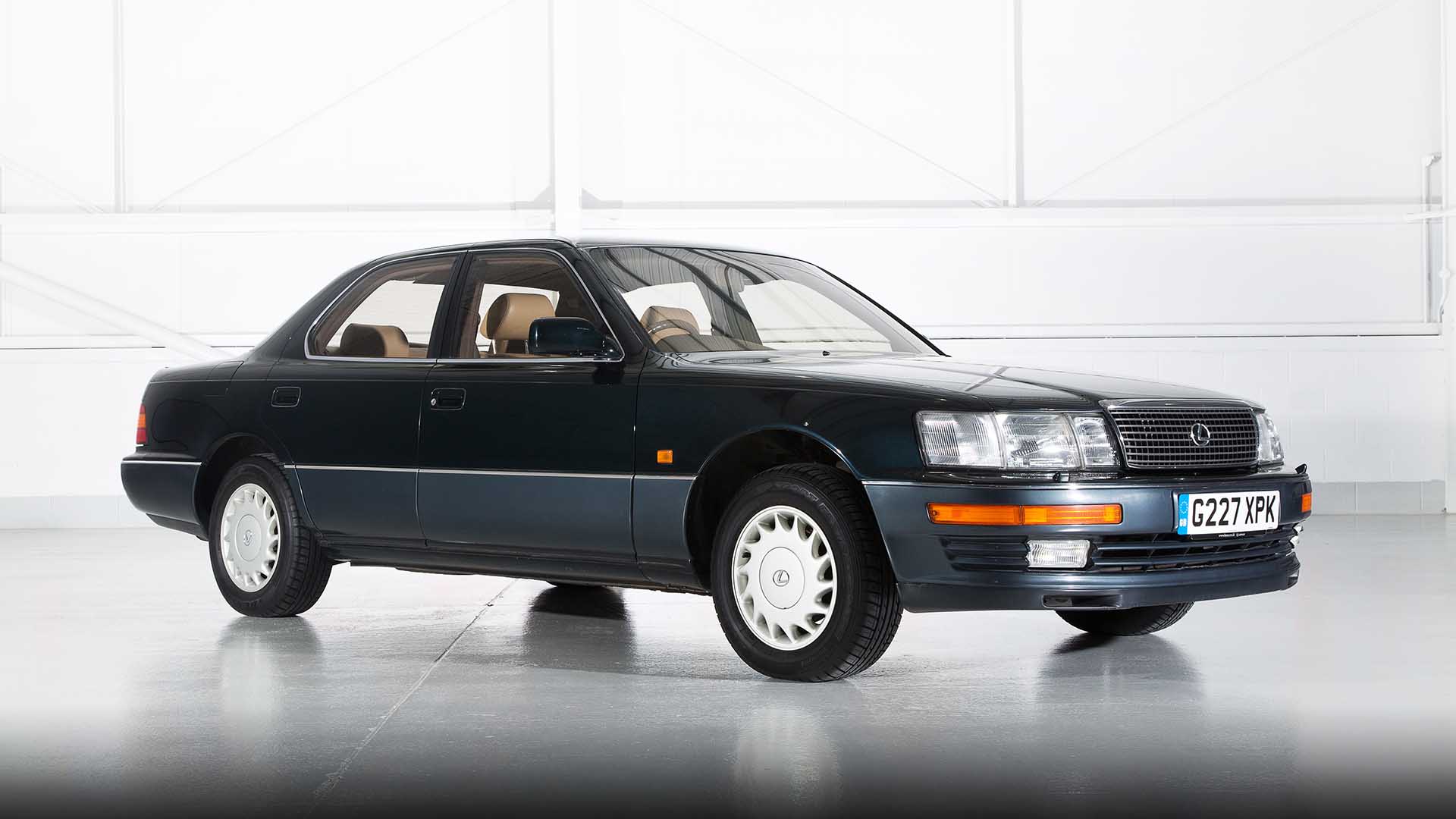
1989 – Lexus LS 400
© LexusBuilt to take on and beat the Mercedes-Benz S-Class, Lexus left no stone unturned in the development of the LS 400. Few cars have come as close to perfection – the LS 400 still feels modern and well engineered, more than 30 years after its launch.
-
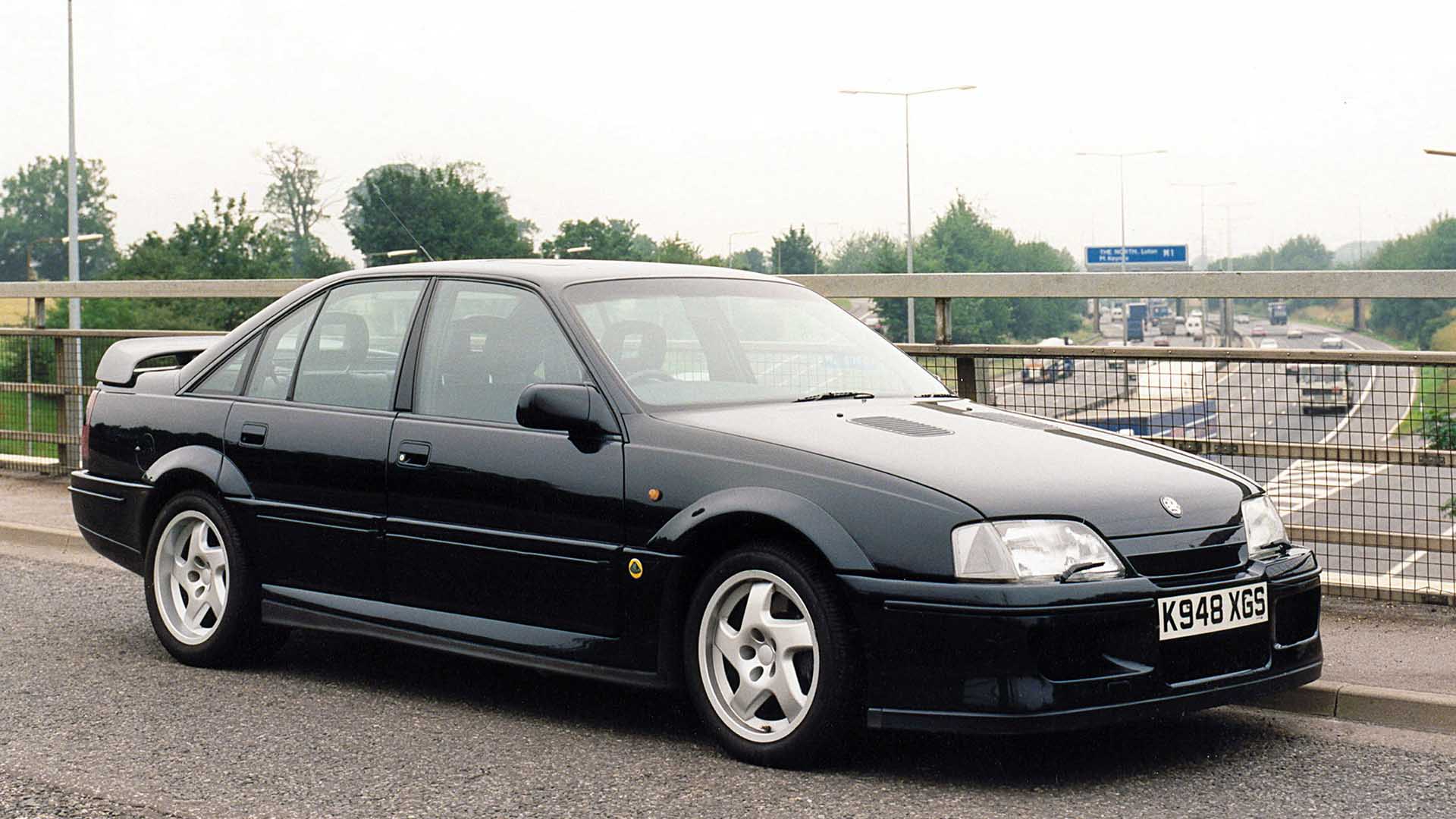
1990 – Vauxhall Lotus Carlton
© VauxhallIt needs no introduction, does it? The Lotus Carlton is the definitive Q-car and one of the most iconic performance saloons of the 1990s. Fast enough to enrage readers of the Daily Mail.
-
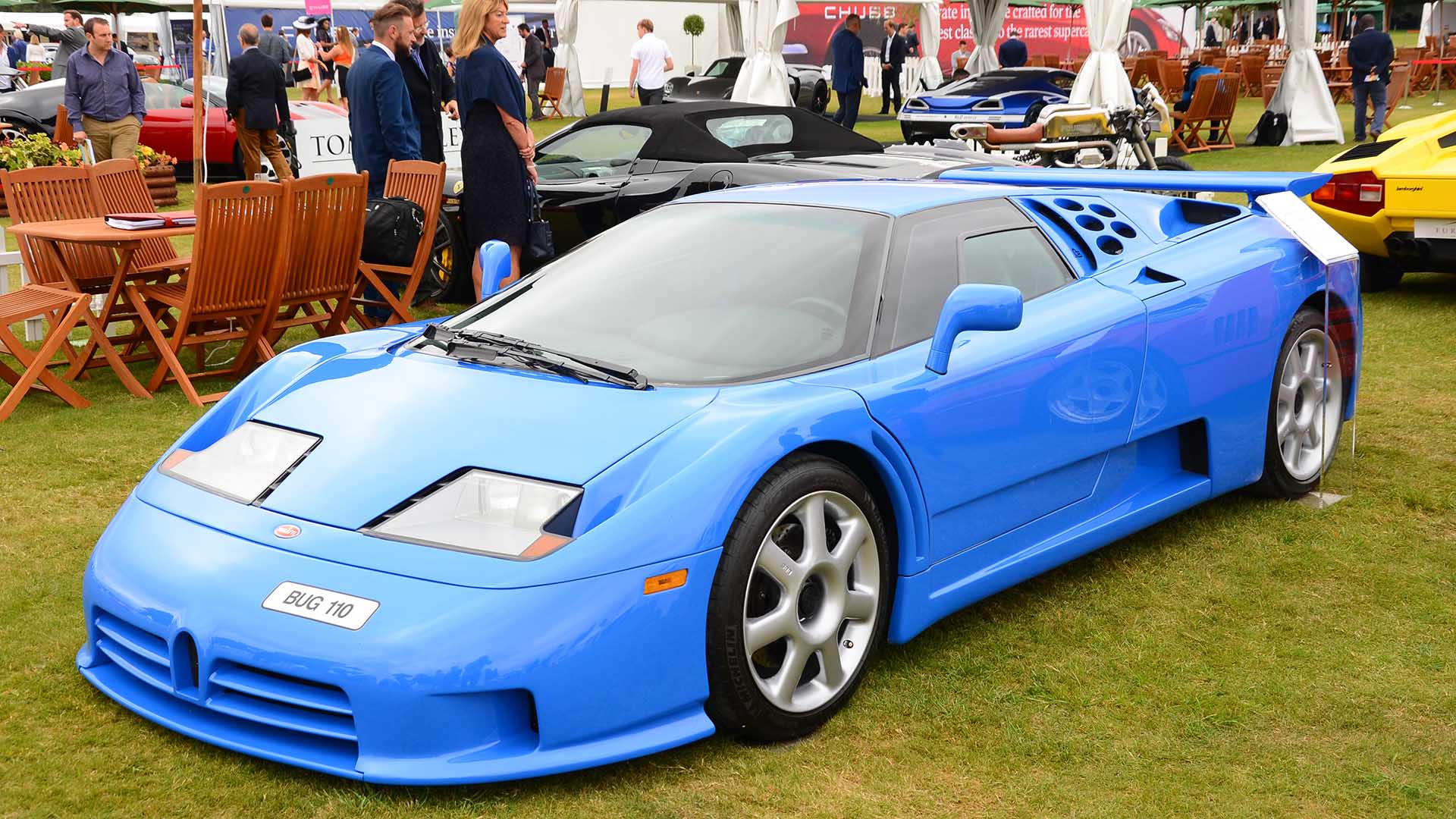
1991 – Bugatti EB 110
© BugattiIn 1991, exactly 110 years of the birth of founder Ettore Bugatti, the company was back. The EB 110 featured a quad-turbocharged V12 engine, permanent four-wheel-drive and the world’s first carbon fibre chassis.
-
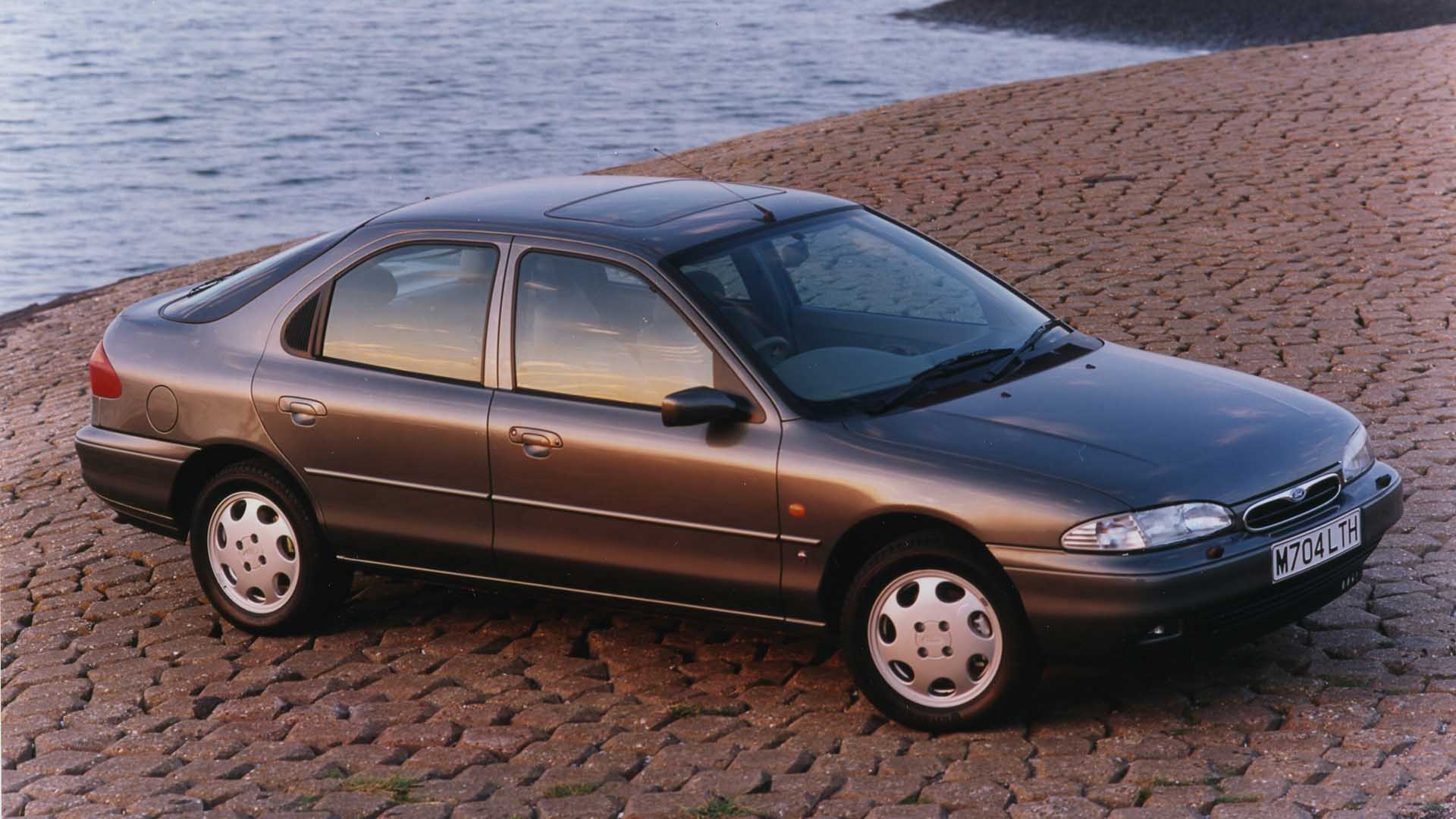
1992 – Ford Mondeo
© FordFord has pulled the plug on the Mondeo, with sales ending in 2022. Although the Mondeo was unveiled at the 1993 Geneva Motor Show, production started in November 1992. Awards and accolades followed, while sales of gaffer tape went through the roof.
-
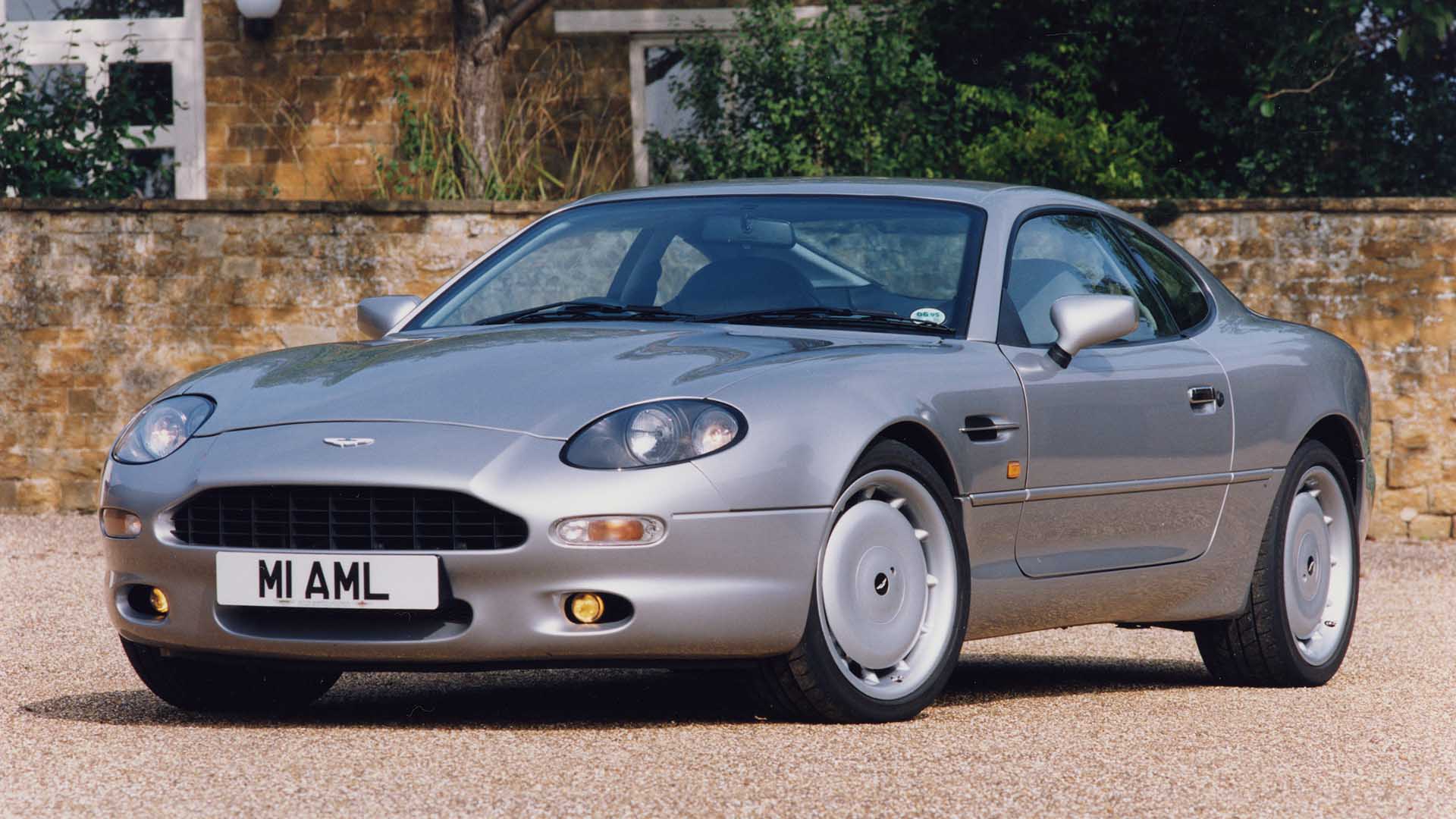
1993 – Aston Martin DB7
© Aston MartinThe DB7 is the Aston Martin you can buy for less than the price of a new Ford Mondeo. Nearly three decades on from its launch, the DB7 remains one of the most beautiful cars of the 1990s.
-
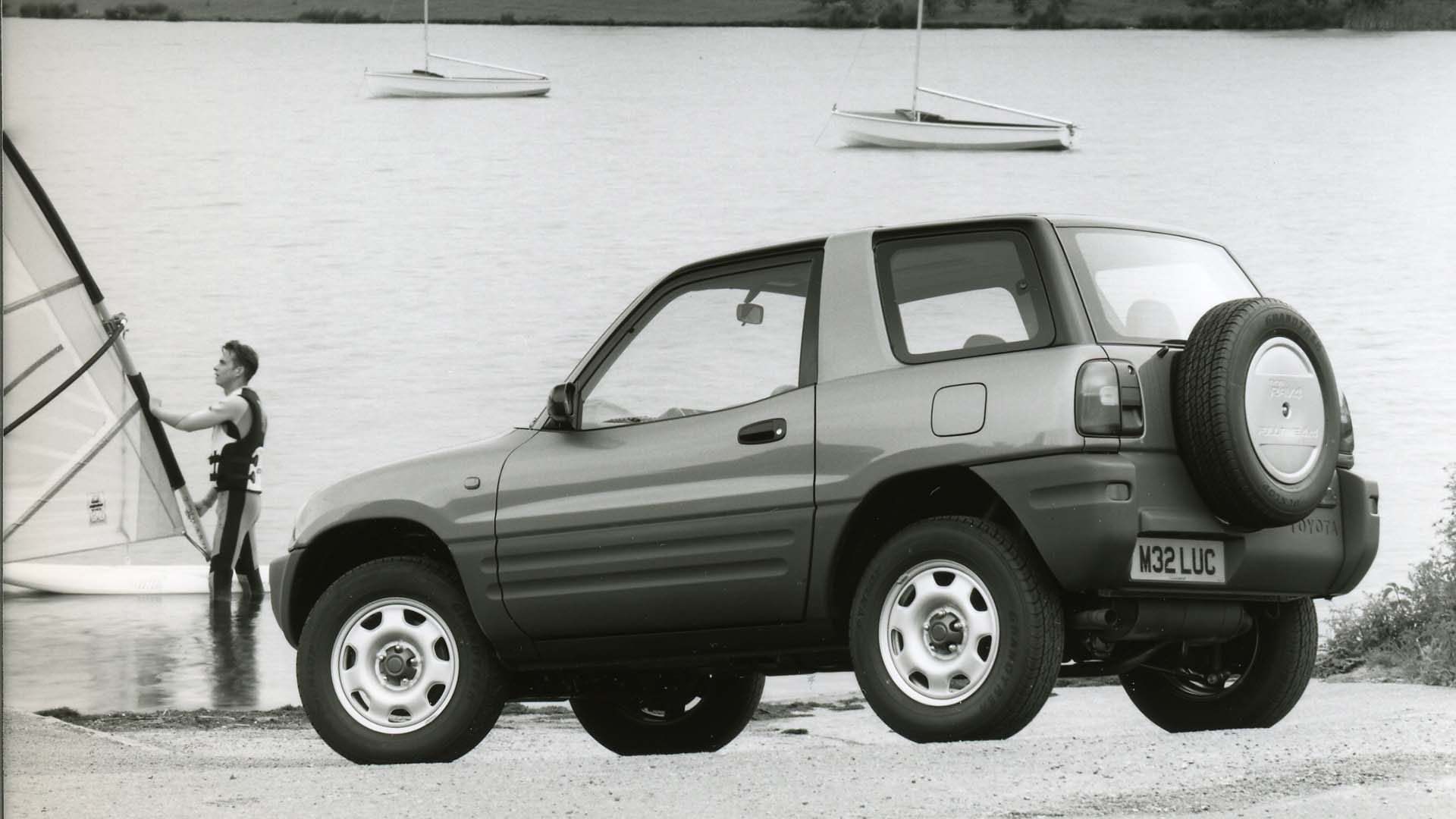
1994 – Toyota RAV4
© ToyotaOne of the early pioneers of the lifestyle crossover, the Toyota RAV4 (Recreational Activity Vehicle 4-wheel-drive) arrived in 1994. It used the platform from the Corolla, engine and components from the Camry/Carina, and the suspension and transmission from the Celica GT-Four.
-
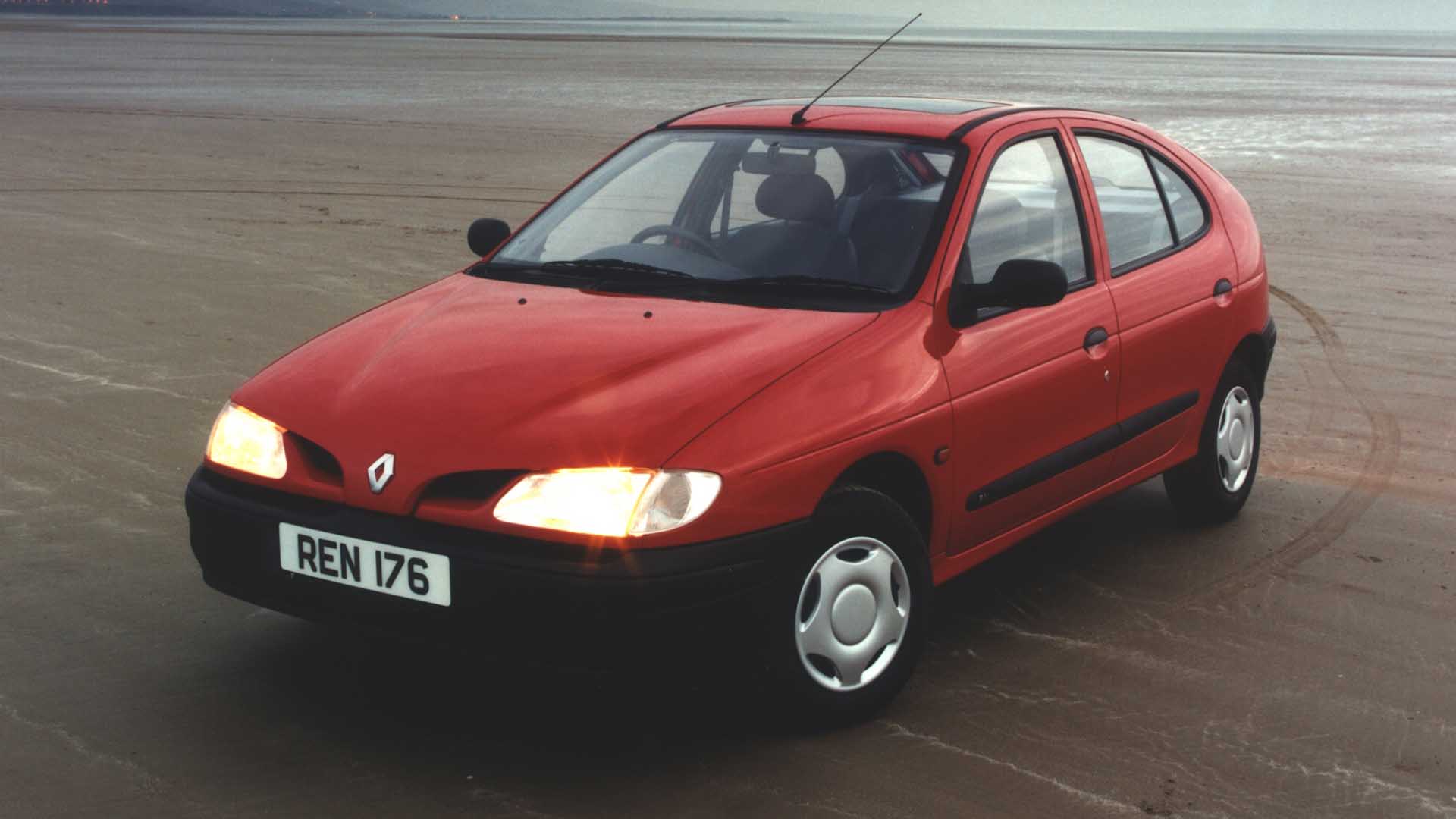
1995 – Renault Megane
© RenaultStop scoffing at the back, because the Renault Megane was a genuinely significant car. Along with the standard five-door family hatchback, the Megane also spawned four-door saloon, coupe, convertible and estate variants. More significantly, it also gave birth to the Megane Scenic, heralding the arrival of a new breed of compact MPVs.
-
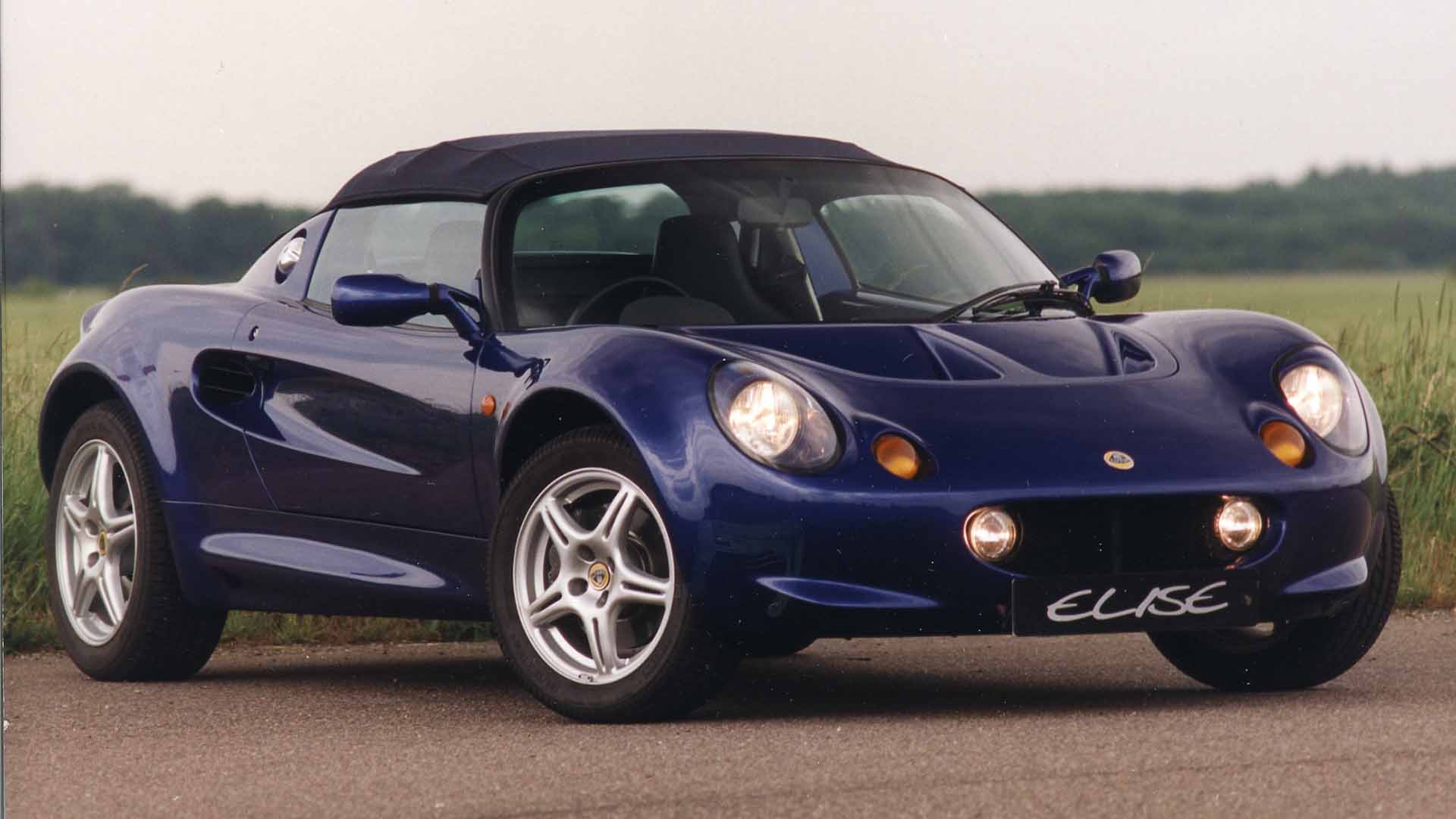
1996 – Lotus Elise
© LotusLotus has called time on the Elise, which will almost certainly renew interest in the original model of 1996. It became the company’s best-selling car, offering a level of purity that’s absent from all but the most driver-focused sports cars.
-
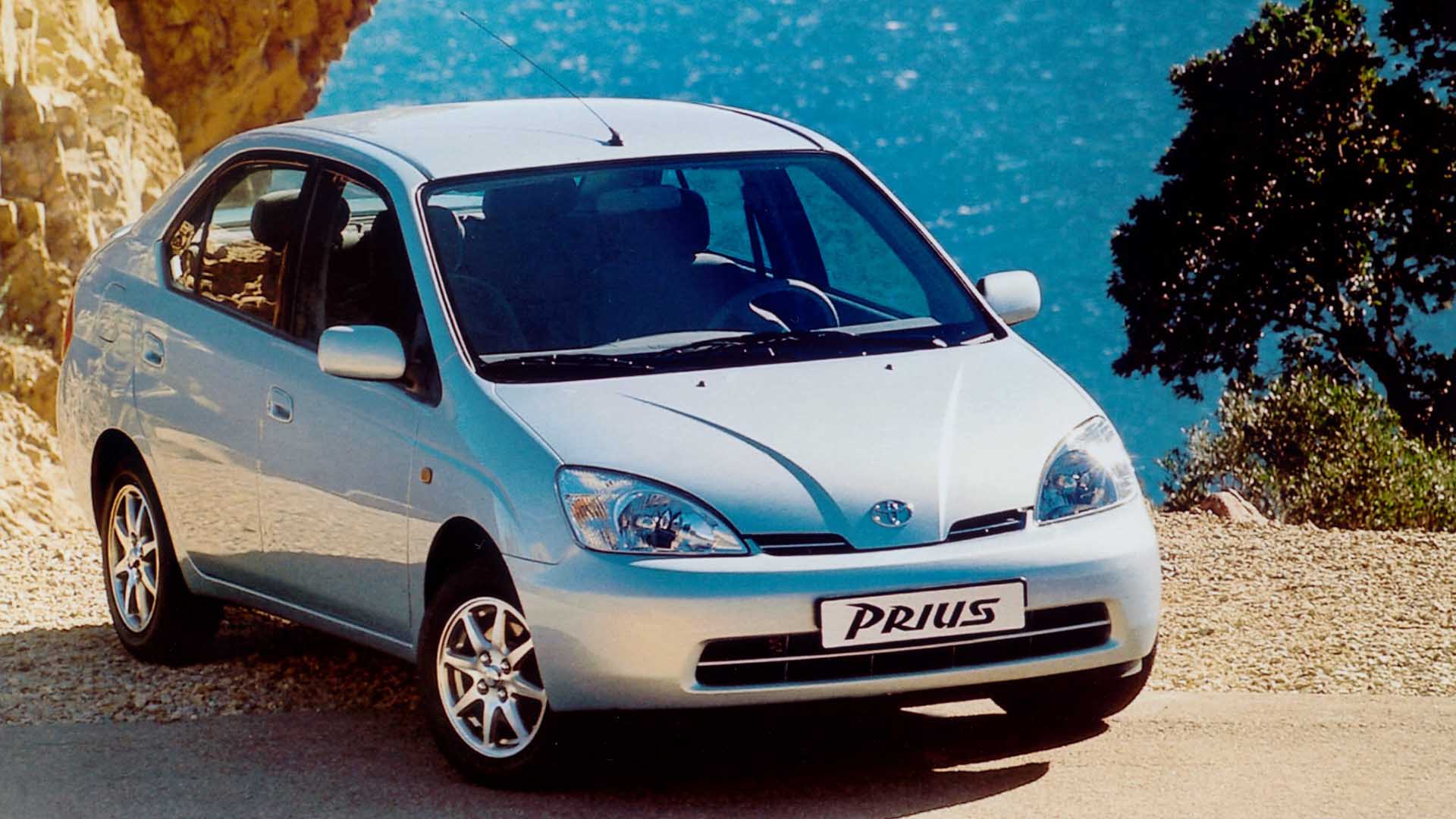
1997 – Toyota Prius
© ToyotaThis was a fabulous year for new car launches. The list includes the Alfa Romeo 156, BMW 3 Series (E46), Chevrolet C5 Corvette, Ford Puma, Land Rover Freelander, Mercedes-Benz A-Class, Saab 9-5, Volkswagen Golf Mk4 and Volvo C70. We’ve chosen the Toyota Prius for its influence on green motoring.
-
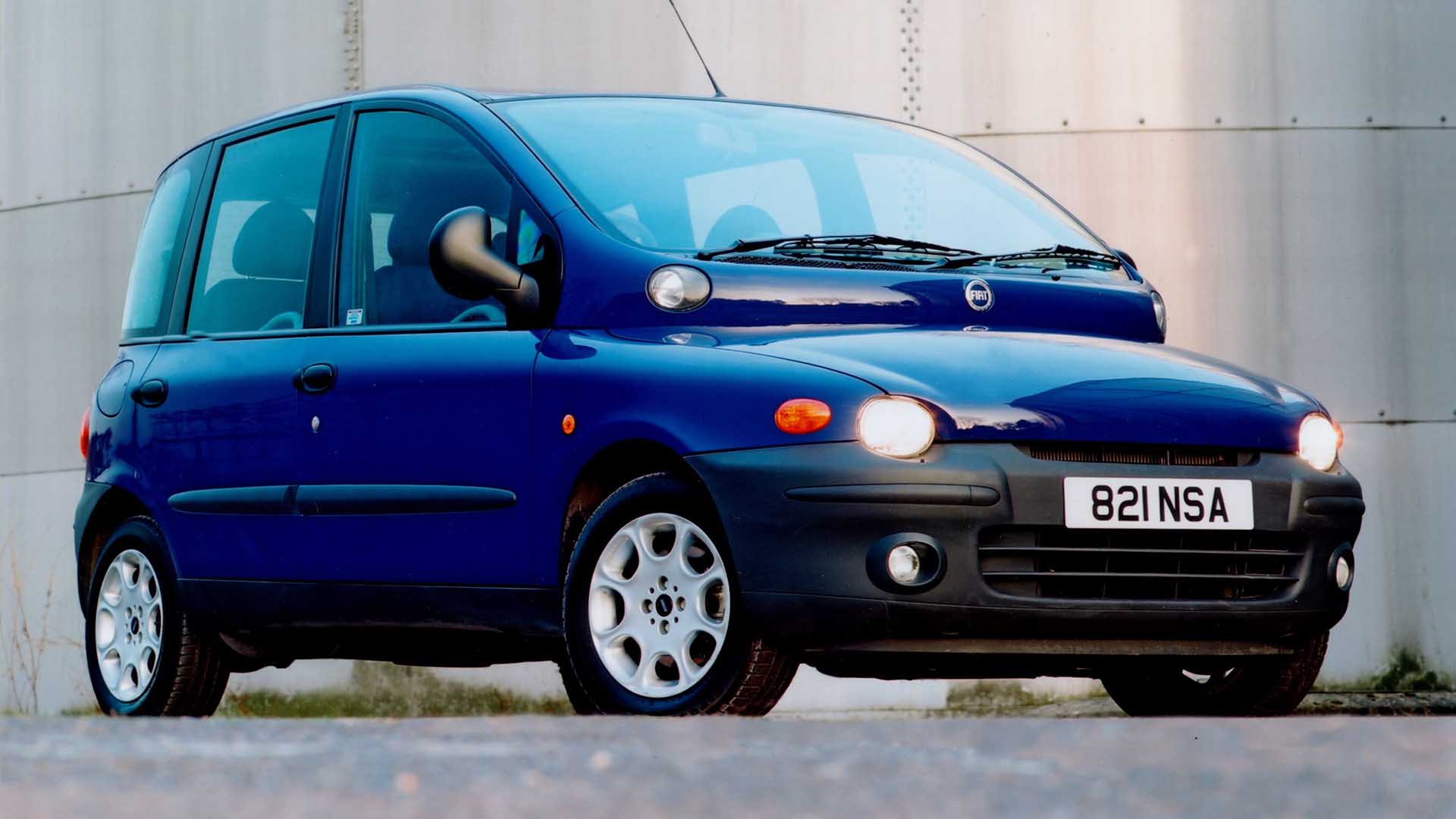
1998 – Fiat Multipla
© FiatIs the Fiat Multipa the most misunderstood car of the 1990s? Probably, which is why we’ve selected it over the Ford Focus, Audi TT and Rover 75. Controversial. The Multipla launched in Europe in 1998, before arriving in the UK in 2000.
-
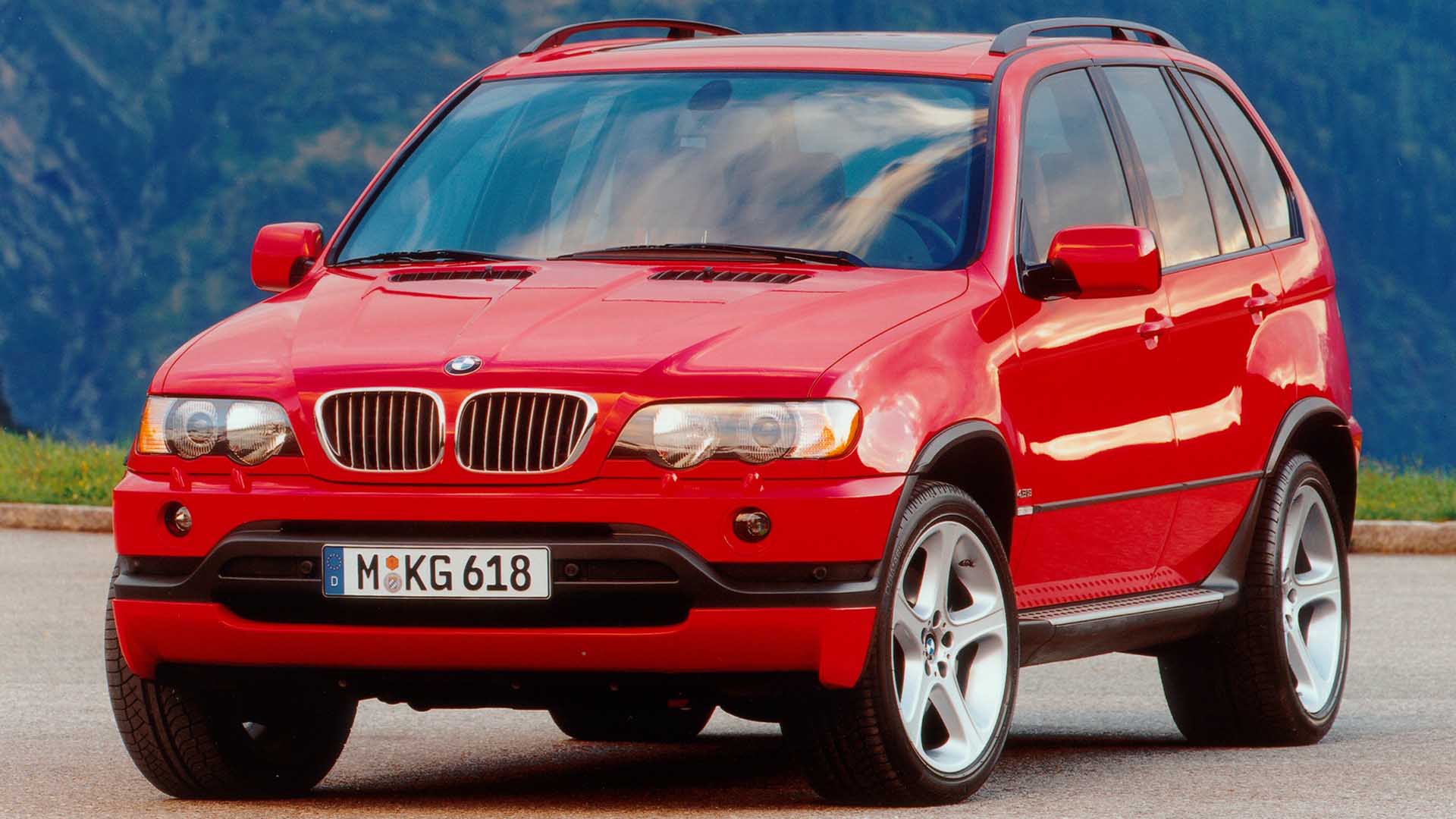
1999 – BMW X5
© BMWThe BMW X5 was one of the first properly driver-focused SUVs. Its excellence came as a direct result of BMW’s ownership of Land Rover, and the X5 shared some components with the Range Rover L322.